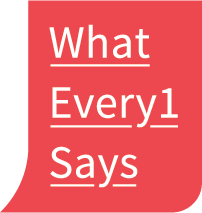(all)
Global Humanities | History of Humanities | Liberal Arts | Humanities and Higher Education | Humanities as Research Activity | Humanities Teaching & Curricula | Humanities and the Sciences | Medical Humanities | Public Humanities | Humanities Advocacy | Humanities and Social Groups | Value of Humanities | Humanities and Economic Value | Humanities Funding | Humanities Statistics | Humanities Surveys | "Crisis" of the Humanities
Humanities Organizations: Humanities Councils (U.S.) | Government Agencies | Foundations | Scholarly Associations
Humanities in: Africa | Asia (East) | Asia (South) | Australasia | Europe | Latin America | Middle East | North America: Canada - Mexico - United States | Scandinavia | United Kingdom
(all)
Lists of News Sources | Databases with News Archives | History of Journalism | Journalism Studies | Journalism Statistics | Journalism Organizations | Student Journalism | Data Journalism | Media Frames (analyzing & changing media narratives using "frame theory") | Media Bias | Fake News | Journalism and Minorities | Journalism and Women | Press Freedom | News & Social Media
(all)
Corpus Representativeness
Comparison paradigms for idea of a corpus: Archives as Paradigm | Canons as Paradigm | Editions as Paradigm | Corpus Linguistics as Paradigm
(all)
Artificial Intelligence | Big Data | Data Mining | Data Notebooks (Jupyter Notebooks) | Data Visualization (see also Topic Model Visualizations) | Hierarchical Clustering | Interpretability & Explainability (see also Topic Model Interpretation) | Mapping | Natural Language Processing | Network Analysis | Open Science | Reporting & Documentation Methods | Reproducibility | Sentiment Analysis | Social Media Analysis | Statistical Methods | Text Analysis (see also Topic Modeling) | Text Classification | Wikification | Word Embedding & Vector Semantics
Topic Modeling (all)
Selected DH research and resources bearing on, or utilized by, the WE1S project.
(all)
Distant Reading | Cultural Analytics | | Sociocultural Approaches | Topic Modeling in DH | Non-consumptive Use
Searchable version of bibliography on Zotero site
For WE1S developers: Biblio style guide | Biblio collection form (suggest additions) | WE1S Bibliography Ontology Outline
2133649
Corpus representativeness
items
1
chicago-fullnote-bibliography
0
date
desc
year
1
1
1
3965
https://we1s.ucsb.edu/wp-content/plugins/zotpress/
%7B%22status%22%3A%22success%22%2C%22updateneeded%22%3Afalse%2C%22instance%22%3A%22zotpress-c28830912cd8cfff504f5a1c21f8f417%22%2C%22meta%22%3A%7B%22request_last%22%3A0%2C%22request_next%22%3A0%2C%22used_cache%22%3Atrue%7D%2C%22data%22%3A%5B%7B%22key%22%3A%228II9MY3H%22%2C%22library%22%3A%7B%22id%22%3A2133649%7D%2C%22meta%22%3A%7B%22creatorSummary%22%3A%22Liu%22%2C%22parsedDate%22%3A%222020%22%2C%22numChildren%22%3A0%7D%2C%22bib%22%3A%22%3Cdiv%20class%3D%5C%22csl-bib-body%5C%22%20style%3D%5C%22line-height%3A%201.35%3B%20padding-left%3A%201em%3B%20text-indent%3A-1em%3B%5C%22%3E%5Cn%20%20%3Cdiv%20class%3D%5C%22csl-entry%5C%22%3ELiu%2C%20Alan.%20%26%23x201C%3BToward%20a%20Diversity%20Stack%3A%20Digital%20Humanities%20and%20Diversity%20as%20Technical%20Problem.%26%23x201D%3B%20%3Ci%3EPMLA%3C%5C%2Fi%3E%20135%2C%20no.%201%20%282020%29%3A%20130%26%23x2013%3B51.%20%3Ca%20href%3D%27https%3A%5C%2F%5C%2Fdoi.org%5C%2F10.1632%5C%2Fpmla.2020.135.1.130%27%3Ehttps%3A%5C%2F%5C%2Fdoi.org%5C%2F10.1632%5C%2Fpmla.2020.135.1.130%3C%5C%2Fa%3E.%20%3Ca%20title%3D%27Cite%20in%20RIS%20Format%27%20class%3D%27zp-CiteRIS%27%20href%3D%27https%3A%5C%2F%5C%2Fwe1s.ucsb.edu%5C%2Fwp-content%5C%2Fplugins%5C%2Fzotpress%5C%2Flib%5C%2Frequest%5C%2Frequest.cite.php%3Fapi_user_id%3D2133649%26amp%3Bitem_key%3D8II9MY3H%27%3ECite%3C%5C%2Fa%3E%20%3C%5C%2Fdiv%3E%5Cn%3C%5C%2Fdiv%3E%22%2C%22data%22%3A%7B%22itemType%22%3A%22journalArticle%22%2C%22title%22%3A%22Toward%20a%20Diversity%20Stack%3A%20Digital%20Humanities%20and%20Diversity%20as%20Technical%20Problem%22%2C%22creators%22%3A%5B%7B%22creatorType%22%3A%22author%22%2C%22firstName%22%3A%22Alan%22%2C%22lastName%22%3A%22Liu%22%7D%5D%2C%22abstractNote%22%3A%22How%20can%20the%20digital%20humanities%20help%20support%20humanities%20scholarship%20on%20diversity%20both%20ideologically%20and%20technically%3F%20This%20essay%20abandons%20the%20diversity%20paradigm%20prevalent%20in%20DH%5Cu2014the%20%5Cu201cbig%20tent%5Cu201d%5Cu2014for%20a%20more%20technically%20functional%20one%3A%20the%20%5Cu201cstack.%5Cu201d%20It%20proposes%20that%20DH%20can%20create%20a%20%5Cu201cdiversity%20stack%5Cu201d%20%28conceptually%20like%20the%20%5Cu201cInternet%20protocol%20stack%5Cu201d%29%20that%20combines%20technical%20and%20theoretical%20strategies%20for%20advancing%20scholarship%20on%20diversity.%20From%20low%20to%20high%2C%20crucial%20levels%20in%20such%20a%20stacked%20approach%20include%20technical%20methods%20for%20dealing%20with%20multilingualism%2C%20multimedia%2C%20unrepresentative%20corpora%2C%20geopolitical%20and%20temporal%20organizations%20of%20identity%2C%20and%20the%20theory%20of%20identity.%20%28AL%29%22%2C%22date%22%3A%222020%22%2C%22language%22%3A%22en%22%2C%22DOI%22%3A%2210.1632%5C%2Fpmla.2020.135.1.130%22%2C%22ISSN%22%3A%220030-8129%22%2C%22url%22%3A%22https%3A%5C%2F%5C%2Fwww.mlajournals.org%5C%2Fdoi%5C%2Fabs%5C%2F10.1632%5C%2Fpmla.2020.135.1.130%22%2C%22collections%22%3A%5B%5D%2C%22dateModified%22%3A%222021-05-29T22%3A10%3A40Z%22%2C%22tags%22%3A%5B%7B%22tag%22%3A%22Archives%20as%20paradigm%22%7D%2C%7B%22tag%22%3A%22Corpus%20representativeness%22%7D%2C%7B%22tag%22%3A%22Humanities%22%7D%2C%7B%22tag%22%3A%22Humanities%20and%20social%20groups%22%7D%2C%7B%22tag%22%3A%22WE1S%20publications%22%7D%5D%7D%7D%2C%7B%22key%22%3A%22E93SH9AR%22%2C%22library%22%3A%7B%22id%22%3A2133649%7D%2C%22meta%22%3A%7B%22creatorSummary%22%3A%22Rawson%20and%20Mu%5Cu00f1oz%22%2C%22parsedDate%22%3A%222019%22%2C%22numChildren%22%3A0%7D%2C%22bib%22%3A%22%3Cdiv%20class%3D%5C%22csl-bib-body%5C%22%20style%3D%5C%22line-height%3A%201.35%3B%20padding-left%3A%201em%3B%20text-indent%3A-1em%3B%5C%22%3E%5Cn%20%20%3Cdiv%20class%3D%5C%22csl-entry%5C%22%3ERawson%2C%20Katie%2C%20and%20Trevor%20Mu%26%23xF1%3Boz.%20%26%23x201C%3BAgainst%20Cleaning.%26%23x201D%3B%20In%20%3Ci%3EDebates%20in%20the%20Digital%20Humanities%201019%3C%5C%2Fi%3E.%20Debates%20in%20the%20Digital%20Humanities.%20Minneapolis%3A%20University%20of%20Minnesota%20Press%2C%202019.%20%3Ca%20href%3D%27https%3A%5C%2F%5C%2Fdhdebates.gc.cuny.edu%5C%2Fread%5C%2Funtitled-f2acf72c-a469-49d8-be35-67f9ac1e3a60%5C%2Fsection%5C%2F07154de9-4903-428e-9c61-7a92a6f22e51%23ch23%27%3Ehttps%3A%5C%2F%5C%2Fdhdebates.gc.cuny.edu%5C%2Fread%5C%2Funtitled-f2acf72c-a469-49d8-be35-67f9ac1e3a60%5C%2Fsection%5C%2F07154de9-4903-428e-9c61-7a92a6f22e51%23ch23%3C%5C%2Fa%3E.%20%3Ca%20title%3D%27Cite%20in%20RIS%20Format%27%20class%3D%27zp-CiteRIS%27%20href%3D%27https%3A%5C%2F%5C%2Fwe1s.ucsb.edu%5C%2Fwp-content%5C%2Fplugins%5C%2Fzotpress%5C%2Flib%5C%2Frequest%5C%2Frequest.cite.php%3Fapi_user_id%3D2133649%26amp%3Bitem_key%3DE93SH9AR%27%3ECite%3C%5C%2Fa%3E%20%3C%5C%2Fdiv%3E%5Cn%3C%5C%2Fdiv%3E%22%2C%22data%22%3A%7B%22itemType%22%3A%22bookSection%22%2C%22title%22%3A%22Against%20Cleaning%22%2C%22creators%22%3A%5B%7B%22creatorType%22%3A%22author%22%2C%22firstName%22%3A%22Katie%22%2C%22lastName%22%3A%22Rawson%22%7D%2C%7B%22creatorType%22%3A%22author%22%2C%22firstName%22%3A%22Trevor%22%2C%22lastName%22%3A%22Mu%5Cu00f1oz%22%7D%5D%2C%22abstractNote%22%3A%22%5BThird%20paragraph%3A%5D%20As%20researchers%20working%20in%20the%20domain%20of%20data-intensive%20humanities%20research%2C%20we%20have%20found%20that%20these%20assumptions%20intensify%20suspicions%20about%20knowledge%20claims%20that%20are%20based%20on%20%5Cu201cdata.%5Cu201d%20In%20fields%20where%20data-intensive%20work%20has%20a%20longer%20history%2C%20researchers%20have%20developed%20paradigms%20and%20practices%20that%20provide%20de%20facto%20definitions%20of%20data%20cleaning%20%28Newman%2C%20Ellisman%2C%20and%20Orcutt%29.%20In%20the%20humanities%2C%20however%2C%20these%20bounds%20are%20still%20unformed.%20Yet%20the%20humanities%20cannot%20import%20paradigms%20and%20practices%20wholesale%20from%20other%20fields%2C%20whether%20from%20%5Cu201ctechnoscience%5Cu201d%20or%20the%20nearer%20%5Cu201csocial%5Cu201d%20sciences%2C%20without%20risking%20the%20foreclosure%20of%20specific%20and%20valuable%20humanistic%20modes%20of%20producing%20knowledge.%20If%20we%20are%20interested%20in%20working%20with%20data%2C%20and%20we%20accept%20that%20there%20is%20something%20in%20our%20work%20with%20data%20that%20is%20like%20what%20other%20fields%20might%20call%20%5Cu201cdata%20cleaning%2C%5Cu201d%20we%20have%20no%20choice%20but%20to%20try%20to%20articulate%20both%20what%20it%20is%20and%20what%20it%20means%20in%20terms%20of%20how%20humanists%20make%20knowledge.%22%2C%22bookTitle%22%3A%22Debates%20in%20the%20Digital%20Humanities%201019%22%2C%22date%22%3A%222019%22%2C%22language%22%3A%22en%22%2C%22ISBN%22%3A%22%22%2C%22url%22%3A%22https%3A%5C%2F%5C%2Fdhdebates.gc.cuny.edu%5C%2Fread%5C%2Funtitled-f2acf72c-a469-49d8-be35-67f9ac1e3a60%5C%2Fsection%5C%2F07154de9-4903-428e-9c61-7a92a6f22e51%23ch23%22%2C%22collections%22%3A%5B%5D%2C%22dateModified%22%3A%222020-09-23T00%3A03%3A53Z%22%2C%22tags%22%3A%5B%7B%22tag%22%3A%22Corpus%20representativeness%22%7D%2C%7B%22tag%22%3A%22DH%20Digital%20humanities%22%7D%5D%7D%7D%2C%7B%22key%22%3A%22UHZ5D9N4%22%2C%22library%22%3A%7B%22id%22%3A2133649%7D%2C%22meta%22%3A%7B%22creatorSummary%22%3A%22Schweitzer%20and%20Henry%22%2C%22parsedDate%22%3A%222019%22%2C%22numChildren%22%3A0%7D%2C%22bib%22%3A%22%3Cdiv%20class%3D%5C%22csl-bib-body%5C%22%20style%3D%5C%22line-height%3A%201.35%3B%20padding-left%3A%201em%3B%20text-indent%3A-1em%3B%5C%22%3E%5Cn%20%20%3Cdiv%20class%3D%5C%22csl-entry%5C%22%3ESchweitzer%2C%20Ivy%2C%20and%20Gordon%20Henry.%20%26%23x201C%3BAfterlives%20of%20Indigenous%20Archives.%26%23x201D%3B%20%3Ci%3EAfterlives%20of%20Indigenous%20Archives%3A%20Essays%20in%20Honor%20of%20the%20Occom%20Circle%3C%5C%2Fi%3E%2C%202019.%20%3Ca%20href%3D%27https%3A%5C%2F%5C%2Fdigitalcommons.dartmouth.edu%5C%2Ffacoa%5C%2F3983%27%3Ehttps%3A%5C%2F%5C%2Fdigitalcommons.dartmouth.edu%5C%2Ffacoa%5C%2F3983%3C%5C%2Fa%3E.%20%3Ca%20title%3D%27Cite%20in%20RIS%20Format%27%20class%3D%27zp-CiteRIS%27%20href%3D%27https%3A%5C%2F%5C%2Fwe1s.ucsb.edu%5C%2Fwp-content%5C%2Fplugins%5C%2Fzotpress%5C%2Flib%5C%2Frequest%5C%2Frequest.cite.php%3Fapi_user_id%3D2133649%26amp%3Bitem_key%3DUHZ5D9N4%27%3ECite%3C%5C%2Fa%3E%20%3C%5C%2Fdiv%3E%5Cn%3C%5C%2Fdiv%3E%22%2C%22data%22%3A%7B%22itemType%22%3A%22journalArticle%22%2C%22title%22%3A%22Afterlives%20of%20Indigenous%20Archives%22%2C%22creators%22%3A%5B%7B%22creatorType%22%3A%22author%22%2C%22firstName%22%3A%22Ivy%22%2C%22lastName%22%3A%22Schweitzer%22%7D%2C%7B%22creatorType%22%3A%22author%22%2C%22firstName%22%3A%22Gordon%22%2C%22lastName%22%3A%22Henry%22%7D%5D%2C%22abstractNote%22%3A%22Afterlives%20of%20Indigenous%20Archives%20offers%20a%20compelling%20critique%20of%20Western%20archives%20and%20their%20use%20in%20the%20development%20of%20%5Cu201cdigital%20humanities.%5Cu201d%20The%20essays%20collected%20here%20present%20the%20work%20of%20an%20international%20and%20interdisciplinary%20group%20of%20indigenous%20scholars%3B%20researchers%20in%20the%20field%20of%20indigenous%20studies%20and%20early%20American%20studies%3B%20and%20librarians%2C%20curators%2C%20activists%2C%20and%20storytellers.%20The%20contributors%20examine%20various%20digital%20projects%20and%20outline%20their%20relevance%20to%20the%20lives%20and%20interests%20of%20tribal%20people%20and%20communities%2C%20along%20with%20the%20transformative%20power%20that%20access%20to%20online%20materials%20affords.%20The%20authors%20aim%20to%20empower%20native%20people%20to%20re-envision%20the%20Western%20archive%20as%20a%20site%20of%20community-based%20practices%20for%20cultural%20preservation%2C%20one%20that%20can%20offer%20indigenous%20perspectives%20and%20new%20technological%20applications%20for%20the%20imaginative%20reconstruction%20of%20the%20tribal%20past%2C%20the%20repatriation%20of%20the%20tribal%20memories%2C%20and%20a%20powerful%20vision%20for%20an%20indigenous%20future.%20This%20important%20and%20timely%20collection%20will%20appeal%20to%20archivists%20and%20indigenous%20studies%20scholars%20alike.%22%2C%22date%22%3A%222019%22%2C%22language%22%3A%22en%22%2C%22DOI%22%3A%22%22%2C%22ISSN%22%3A%22%22%2C%22url%22%3A%22https%3A%5C%2F%5C%2Fdigitalcommons.dartmouth.edu%5C%2Ffacoa%5C%2F3983%22%2C%22collections%22%3A%5B%5D%2C%22dateModified%22%3A%222020-08-31T02%3A02%3A09Z%22%2C%22tags%22%3A%5B%7B%22tag%22%3A%22Archives%20as%20paradigm%22%7D%2C%7B%22tag%22%3A%22Corpus%20representativeness%22%7D%2C%7B%22tag%22%3A%22DH%20Digital%20humanities%22%7D%2C%7B%22tag%22%3A%22DH%20Sociocultural%20approaches%22%7D%5D%7D%7D%2C%7B%22key%22%3A%22VZDBPFYU%22%2C%22library%22%3A%7B%22id%22%3A2133649%7D%2C%22meta%22%3A%7B%22creatorSummary%22%3A%22Daniel%22%2C%22parsedDate%22%3A%222019%22%2C%22numChildren%22%3A0%7D%2C%22bib%22%3A%22%3Cdiv%20class%3D%5C%22csl-bib-body%5C%22%20style%3D%5C%22line-height%3A%201.35%3B%20padding-left%3A%201em%3B%20text-indent%3A-1em%3B%5C%22%3E%5Cn%20%20%3Cdiv%20class%3D%5C%22csl-entry%5C%22%3EDaniel%2C%20Dominique.%20%26%23x201C%3BElusive%20Stories%3A%20Collecting%20and%20Preserving%20the%20Foreign-Language%20Ethnic%20Press%20in%20the%20United%20States.%26%23x201D%3B%20%3Ci%3ESerials%20Review%3C%5C%2Fi%3E%2045%2C%20no.%201%26%23x2013%3B2%20%282019%29%3A%207%26%23x2013%3B25.%20%3Ca%20href%3D%27https%3A%5C%2F%5C%2Fdoi.org%5C%2F10.1080%5C%2F00987913.2019.1610148%27%3Ehttps%3A%5C%2F%5C%2Fdoi.org%5C%2F10.1080%5C%2F00987913.2019.1610148%3C%5C%2Fa%3E.%20%3Ca%20title%3D%27Cite%20in%20RIS%20Format%27%20class%3D%27zp-CiteRIS%27%20href%3D%27https%3A%5C%2F%5C%2Fwe1s.ucsb.edu%5C%2Fwp-content%5C%2Fplugins%5C%2Fzotpress%5C%2Flib%5C%2Frequest%5C%2Frequest.cite.php%3Fapi_user_id%3D2133649%26amp%3Bitem_key%3DVZDBPFYU%27%3ECite%3C%5C%2Fa%3E%20%3C%5C%2Fdiv%3E%5Cn%3C%5C%2Fdiv%3E%22%2C%22data%22%3A%7B%22itemType%22%3A%22journalArticle%22%2C%22title%22%3A%22Elusive%20Stories%3A%20Collecting%20and%20Preserving%20the%20Foreign-Language%20Ethnic%20Press%20in%20the%20United%20States%22%2C%22creators%22%3A%5B%7B%22creatorType%22%3A%22author%22%2C%22firstName%22%3A%22Dominique%22%2C%22lastName%22%3A%22Daniel%22%7D%5D%2C%22abstractNote%22%3A%22This%20study%20surveys%20the%20development%20of%20collections%20of%20foreign-language%20ethnic%20newspapers%20in%20American%20libraries%20and%20archives%20since%20the%201960s.%20Relying%20on%20a%20review%20of%20historical%20and%20media%20studies%20scholarship%20as%20well%20as%20library%20and%20archival%20science%20literature%2C%20the%20article%20aims%20to%20identify%20the%20main%20sources%20of%20non-English%20ethnic%20newspapers%20available%20in%20the%20United%20States%20and%20to%20examine%20the%20difficulties%20such%20newspapers%20present%20for%20libraries%2C%20from%20older%20print%20publications%20to%20today%5Cu2019s%20born-digital%20media%2C%20regarding%20collection%20development%2C%20bibliographic%20control%2C%20and%20preservation.%20After%20a%20brief%20historical%20survey%20of%20the%20foreign-language%20ethnic%20press%20in%20the%20United%20States%2C%20the%20article%20analyzes%20the%20development%20of%20library%20collections%20since%20the%201960s%20as%20well%20as%20libraries%5Cu2019%20efforts%20to%20preserve%20them%20and%20improve%20access%20to%20them.%20It%20then%20evaluates%20the%20state%20of%20digitization%20and%20online%20availability%20of%20foreign-language%20ethnic%20newspapers%20and%20initiates%20a%20reflection%20on%20the%20need%20to%20collect%20current%20print%20and%20digital%20ethnic%20newspapers.%22%2C%22date%22%3A%222019%22%2C%22language%22%3A%22en%22%2C%22DOI%22%3A%2210.1080%5C%2F00987913.2019.1610148%22%2C%22ISSN%22%3A%220098-7913%22%2C%22url%22%3A%22https%3A%5C%2F%5C%2Fdoi.org%5C%2F10.1080%5C%2F00987913.2019.1610148%22%2C%22collections%22%3A%5B%5D%2C%22dateModified%22%3A%222020-08-30T07%3A42%3A40Z%22%2C%22tags%22%3A%5B%7B%22tag%22%3A%22Archives%20as%20paradigm%22%7D%2C%7B%22tag%22%3A%22Corpus%20representativeness%22%7D%2C%7B%22tag%22%3A%22Journalism%22%7D%2C%7B%22tag%22%3A%22Journalism%20and%20minorities%22%7D%5D%7D%7D%2C%7B%22key%22%3A%2233NYWHBB%22%2C%22library%22%3A%7B%22id%22%3A2133649%7D%2C%22meta%22%3A%7B%22creatorSummary%22%3A%22Tahmasebi%20et%20al.%22%2C%22parsedDate%22%3A%222019%22%2C%22numChildren%22%3A0%7D%2C%22bib%22%3A%22%3Cdiv%20class%3D%5C%22csl-bib-body%5C%22%20style%3D%5C%22line-height%3A%201.35%3B%20padding-left%3A%201em%3B%20text-indent%3A-1em%3B%5C%22%3E%5Cn%20%20%3Cdiv%20class%3D%5C%22csl-entry%5C%22%3ETahmasebi%2C%20Nina%2C%20Niclas%20Hagen%2C%20Daniel%20Brod%26%23xE9%3Bn%2C%20and%20Mats%20Malm.%20%26%23x201C%3BA%20Convergence%20of%20Methodologies%3A%20Notes%20on%20Data-Intensive%20Humanities%20Research.%26%23x201D%3B%20In%20%3Ci%3EDigital%20Humanities%20in%20the%20Nordic%20Countries%204th%20Conference%3C%5C%2Fi%3E.%20Helsinki%3A%20Nina%20Tahmasebi%2C%202019.%20%3Ca%20href%3D%27%5C%2Fpublication%5C%2F2019-aconvergenceofmethods%5C%2F%27%3E%5C%2Fpublication%5C%2F2019-aconvergenceofmethods%5C%2F%3C%5C%2Fa%3E.%20%3Ca%20title%3D%27Cite%20in%20RIS%20Format%27%20class%3D%27zp-CiteRIS%27%20href%3D%27https%3A%5C%2F%5C%2Fwe1s.ucsb.edu%5C%2Fwp-content%5C%2Fplugins%5C%2Fzotpress%5C%2Flib%5C%2Frequest%5C%2Frequest.cite.php%3Fapi_user_id%3D2133649%26amp%3Bitem_key%3D33NYWHBB%27%3ECite%3C%5C%2Fa%3E%20%3C%5C%2Fdiv%3E%5Cn%3C%5C%2Fdiv%3E%22%2C%22data%22%3A%7B%22itemType%22%3A%22conferencePaper%22%2C%22title%22%3A%22A%20Convergence%20of%20Methodologies%3A%20Notes%20on%20Data-Intensive%20Humanities%20Research%22%2C%22creators%22%3A%5B%7B%22creatorType%22%3A%22author%22%2C%22firstName%22%3A%22Nina%22%2C%22lastName%22%3A%22Tahmasebi%22%7D%2C%7B%22creatorType%22%3A%22author%22%2C%22firstName%22%3A%22Niclas%22%2C%22lastName%22%3A%22Hagen%22%7D%2C%7B%22creatorType%22%3A%22author%22%2C%22firstName%22%3A%22Daniel%22%2C%22lastName%22%3A%22Brod%5Cu00e9n%22%7D%2C%7B%22creatorType%22%3A%22author%22%2C%22firstName%22%3A%22Mats%22%2C%22lastName%22%3A%22Malm%22%7D%5D%2C%22abstractNote%22%3A%22In%20this%20paper%2C%20we%20discuss%20a%20data-intensive%20research%20methodology%20for%20the%20digital%20humanities.%20We%20highlight%20the%20differences%20and%20commonalities%20between%20quantitative%20and%20qualitative%20research%20methodologies%20in%20relation%20to%20a%20data-intensive%20research%20process.%20We%20argue%20that%20issues%20of%20representativeness%20and%20reduction%20must%20be%20in%20focus%20for%20all%20phases%20of%20the%20process%3B%20from%20the%20status%20of%20texts%20as%20such%2C%20over%20their%20digitization%20to%20pre-processing%20and%20methodological%20exploration.%22%2C%22date%22%3A%222019%22%2C%22proceedingsTitle%22%3A%22Digital%20Humanities%20in%20the%20Nordic%20Countries%204th%20Conference%22%2C%22conferenceName%22%3A%22DHN2019%22%2C%22language%22%3A%22en%22%2C%22DOI%22%3A%22%22%2C%22ISBN%22%3A%22%22%2C%22url%22%3A%22%5C%2Fpublication%5C%2F2019-aconvergenceofmethods%5C%2F%22%2C%22collections%22%3A%5B%5D%2C%22dateModified%22%3A%222019-08-16T22%3A23%3A09Z%22%2C%22tags%22%3A%5B%7B%22tag%22%3A%22Corpus%20representativeness%22%7D%2C%7B%22tag%22%3A%22DH%20Digital%20humanities%22%7D%2C%7B%22tag%22%3A%22Interpretability%20and%20explainability%22%7D%5D%7D%7D%2C%7B%22key%22%3A%226JRC6HPJ%22%2C%22library%22%3A%7B%22id%22%3A2133649%7D%2C%22meta%22%3A%7B%22creatorSummary%22%3A%22Guiliano%20and%20Heitman%22%2C%22parsedDate%22%3A%222019%22%2C%22numChildren%22%3A0%7D%2C%22bib%22%3A%22%3Cdiv%20class%3D%5C%22csl-bib-body%5C%22%20style%3D%5C%22line-height%3A%201.35%3B%20padding-left%3A%201em%3B%20text-indent%3A-1em%3B%5C%22%3E%5Cn%20%20%3Cdiv%20class%3D%5C%22csl-entry%5C%22%3EGuiliano%2C%20Jennifer%2C%20and%20Carolyn%20Heitman.%20%26%23x201C%3BDifficult%20Heritage%20and%20the%20Complexities%20of%20Indigenous%20Data.%26%23x201D%3B%20%3Ci%3EJournal%20of%20Cultural%20Analytics%3C%5C%2Fi%3E%2C%202019%2C%201041.%20%3Ca%20href%3D%27https%3A%5C%2F%5C%2Fculturalanalytics.org%5C%2Farticle%5C%2F11041-difficult-heritage-and-the-complexities-of-indigenous-data%27%3Ehttps%3A%5C%2F%5C%2Fculturalanalytics.org%5C%2Farticle%5C%2F11041-difficult-heritage-and-the-complexities-of-indigenous-data%3C%5C%2Fa%3E.%20%3Ca%20title%3D%27Cite%20in%20RIS%20Format%27%20class%3D%27zp-CiteRIS%27%20href%3D%27https%3A%5C%2F%5C%2Fwe1s.ucsb.edu%5C%2Fwp-content%5C%2Fplugins%5C%2Fzotpress%5C%2Flib%5C%2Frequest%5C%2Frequest.cite.php%3Fapi_user_id%3D2133649%26amp%3Bitem_key%3D6JRC6HPJ%27%3ECite%3C%5C%2Fa%3E%20%3C%5C%2Fdiv%3E%5Cn%3C%5C%2Fdiv%3E%22%2C%22data%22%3A%7B%22itemType%22%3A%22journalArticle%22%2C%22title%22%3A%22Difficult%20Heritage%20and%20the%20Complexities%20of%20Indigenous%20Data%22%2C%22creators%22%3A%5B%7B%22creatorType%22%3A%22author%22%2C%22firstName%22%3A%22Jennifer%22%2C%22lastName%22%3A%22Guiliano%22%7D%2C%7B%22creatorType%22%3A%22author%22%2C%22firstName%22%3A%22Carolyn%22%2C%22lastName%22%3A%22Heitman%22%7D%5D%2C%22abstractNote%22%3A%22%5BSecond%20paragraph%3A%5D%20Our%20contemporary%20data%20culture%2C%20as%20it%20is%20often%20taught%20to%20humanists%2C%20encourages%20scholars%20to%20perceive%20data%20as%20something%20discoverable%20that%20can%20be%20shaped%2C%20challenged%2C%20corrected%2C%20and%20built%20upon.%20The%20humanities%2C%20social%20sciences%20and%20physical%20sciences%20embrace%20a%20data%20culture%20that%20takes%20as%20its%20starting%20point%20the%20notion%20that%20data%20%28and%20knowledge%29%20should%20proliferate%20and%20circulate%20widely%20for%20the%20public%20good.%20For%20scholars%20working%20in%20Native%20American%20and%20Indigenous%20communities%20%28as%20well%20as%20other%20minority%20communities%29%20data%20can%20be%20dangerous.%20Data%20have%20been%20used%20to%20promote%20policies%20of%20genocide%2C%20inflict%20trauma%2C%20and%20fragment%20communities%2C%20all%20of%20which%20have%20had%20far-reaching%20consequences%20across%20generations.%20In%20this%20article%2C%20we%20explore%20data%20related%20to%20Indigenous%20peoples%20as%20a%20multiplicity%20of%20data%20cultures.%20We%20highlight%20how%20theories%20of%20difficult%20cultural%20heritage%20and%20survivance1%20trouble%20the%20dominant%2C%20normative%20data%20culture%20within%20which%20most%20humanities%20researchers%20operate.%20Difficult%20heritage2%20serves%20as%20a%20useful%20construct%20for%20exploring%20the%20aggregation%20of%20cultural%20records%20related%20to%20colonialism%20and%20its%20impacts%20on%20Native%20peoples.%20It%20reconciles%20concerns%20of%20documenting%20the%20past%20with%20the%20need%20to%20confront%20the%20genocidal%20practices%20from%20which%20most%20of%20these%20records%20result.%20In%20this%20article%2C%20we%20interrogate%20how%20the%20culture%20of%20open%20access%20and%20public%20data%20consumption%20conflict%20with%20many%20Indigenous%20communities%20and%20their%20data%20cultures.%20And%2C%20importantly%2C%20we%20identify%20how%20current%20trends%20in%20data%20consumption%20and%20representation%20by%20non-%20Native%20scholars%20working%20with%20Native%20American%20and%20Indigenous%20cultural%20data%20have%20led%20to%20continued%20infringements%20on%20Native%20sovereignty.%22%2C%22date%22%3A%222019%22%2C%22language%22%3A%22en%22%2C%22DOI%22%3A%22%22%2C%22ISSN%22%3A%22%22%2C%22url%22%3A%22https%3A%5C%2F%5C%2Fculturalanalytics.org%5C%2Farticle%5C%2F11041-difficult-heritage-and-the-complexities-of-indigenous-data%22%2C%22collections%22%3A%5B%5D%2C%22dateModified%22%3A%222020-04-11T07%3A40%3A07Z%22%2C%22tags%22%3A%5B%7B%22tag%22%3A%22Corpus%20representativeness%22%7D%2C%7B%22tag%22%3A%22DH%20Cultural%20analytics%22%7D%2C%7B%22tag%22%3A%22DH%20Digital%20humanities%22%7D%2C%7B%22tag%22%3A%22DH%20Sociocultural%20approaches%22%7D%5D%7D%7D%2C%7B%22key%22%3A%226G29AQLR%22%2C%22library%22%3A%7B%22id%22%3A2133649%7D%2C%22meta%22%3A%7B%22creatorSummary%22%3A%22Bode%22%2C%22parsedDate%22%3A%222019%22%2C%22numChildren%22%3A0%7D%2C%22bib%22%3A%22%3Cdiv%20class%3D%5C%22csl-bib-body%5C%22%20style%3D%5C%22line-height%3A%201.35%3B%20padding-left%3A%201em%3B%20text-indent%3A-1em%3B%5C%22%3E%5Cn%20%20%3Cdiv%20class%3D%5C%22csl-entry%5C%22%3EBode%2C%20Katherine.%20%26%23x201C%3BWhy%20You%20Can%26%23x2019%3Bt%20Model%20Away%20Bias%20%28Pre-Print%29.%26%23x201D%3B%20%3Ci%3EModern%20Language%20Quarterly%3C%5C%2Fi%3E%2080%2C%20no.%203%20%282019%29.%20%3Ca%20href%3D%27https%3A%5C%2F%5C%2Ft.co%5C%2FS7DZHgplsG%3Famp%3D1%27%3Ehttps%3A%5C%2F%5C%2Ft.co%5C%2FS7DZHgplsG%3Famp%3D1%3C%5C%2Fa%3E.%20%3Ca%20title%3D%27Cite%20in%20RIS%20Format%27%20class%3D%27zp-CiteRIS%27%20href%3D%27https%3A%5C%2F%5C%2Fwe1s.ucsb.edu%5C%2Fwp-content%5C%2Fplugins%5C%2Fzotpress%5C%2Flib%5C%2Frequest%5C%2Frequest.cite.php%3Fapi_user_id%3D2133649%26amp%3Bitem_key%3D6G29AQLR%27%3ECite%3C%5C%2Fa%3E%20%3C%5C%2Fdiv%3E%5Cn%3C%5C%2Fdiv%3E%22%2C%22data%22%3A%7B%22itemType%22%3A%22journalArticle%22%2C%22title%22%3A%22Why%20you%20can%5Cu2019t%20model%20away%20bias%20%28pre-print%29%22%2C%22creators%22%3A%5B%7B%22creatorType%22%3A%22author%22%2C%22firstName%22%3A%22Katherine%22%2C%22lastName%22%3A%22Bode%22%7D%5D%2C%22abstractNote%22%3A%22%22%2C%22date%22%3A%222019%22%2C%22language%22%3A%22en%22%2C%22DOI%22%3A%22%22%2C%22ISSN%22%3A%22%22%2C%22url%22%3A%22https%3A%5C%2F%5C%2Ft.co%5C%2FS7DZHgplsG%3Famp%3D1%22%2C%22collections%22%3A%5B%5D%2C%22dateModified%22%3A%222019-09-11T10%3A54%3A33Z%22%2C%22tags%22%3A%5B%7B%22tag%22%3A%22Corpus%20representativeness%22%7D%2C%7B%22tag%22%3A%22DH%20Digital%20humanities%22%7D%5D%7D%7D%2C%7B%22key%22%3A%22A3K3D4JY%22%2C%22library%22%3A%7B%22id%22%3A2133649%7D%2C%22meta%22%3A%7B%22creatorSummary%22%3A%22Ward%20and%20Wisnicki%22%2C%22parsedDate%22%3A%222019%22%2C%22numChildren%22%3A0%7D%2C%22bib%22%3A%22%3Cdiv%20class%3D%5C%22csl-bib-body%5C%22%20style%3D%5C%22line-height%3A%201.35%3B%20padding-left%3A%201em%3B%20text-indent%3A-1em%3B%5C%22%3E%5Cn%20%20%3Cdiv%20class%3D%5C%22csl-entry%5C%22%3EWard%2C%20Megan%2C%20and%20Adrian%20S%20Wisnicki.%20%26%23x201C%3BThe%20Archive%20After%20Theory.%26%23x201D%3B%20In%20%3Ci%3EDebates%20in%20the%20Digital%20Humanities%202019%3C%5C%2Fi%3E.%20Minneapolis%3A%20University%20of%20Minnesota%20Press%2C%202019.%20%3Ca%20href%3D%27https%3A%5C%2F%5C%2Fdhdebates.gc.cuny.edu%5C%2Fread%5C%2Funtitled-f2acf72c-a469-49d8-be35-67f9ac1e3a60%5C%2Fsection%5C%2Fa8eccb81-e950-4760-ba93-38e0b1f2b9d0%23ch18%27%3Ehttps%3A%5C%2F%5C%2Fdhdebates.gc.cuny.edu%5C%2Fread%5C%2Funtitled-f2acf72c-a469-49d8-be35-67f9ac1e3a60%5C%2Fsection%5C%2Fa8eccb81-e950-4760-ba93-38e0b1f2b9d0%23ch18%3C%5C%2Fa%3E.%20%3Ca%20title%3D%27Cite%20in%20RIS%20Format%27%20class%3D%27zp-CiteRIS%27%20href%3D%27https%3A%5C%2F%5C%2Fwe1s.ucsb.edu%5C%2Fwp-content%5C%2Fplugins%5C%2Fzotpress%5C%2Flib%5C%2Frequest%5C%2Frequest.cite.php%3Fapi_user_id%3D2133649%26amp%3Bitem_key%3DA3K3D4JY%27%3ECite%3C%5C%2Fa%3E%20%3C%5C%2Fdiv%3E%5Cn%3C%5C%2Fdiv%3E%22%2C%22data%22%3A%7B%22itemType%22%3A%22bookSection%22%2C%22title%22%3A%22The%20Archive%20After%20Theory%22%2C%22creators%22%3A%5B%7B%22creatorType%22%3A%22author%22%2C%22firstName%22%3A%22Megan%22%2C%22lastName%22%3A%22Ward%22%7D%2C%7B%22creatorType%22%3A%22author%22%2C%22firstName%22%3A%22Adrian%20S%22%2C%22lastName%22%3A%22Wisnicki%22%7D%5D%2C%22abstractNote%22%3A%22%5BBeginning%20of%20essay%5D%3A%20The%20digital%20archive%20is%20a%20reactive%20entity%2C%20one%20that%20attempts%20to%20account%20for%20its%20own%20authorizing%20logic%20in%20ways%20that%20make%20it%20theoretically%2C%20not%20just%20technologically%2C%20separate%20from%20earlier%20physical%20archives.%20This%20is%20in%20part%20because%20the%20first%20digital%20archives%20emerged%20in%20the%20midst%20of%20the%20archival%20theory%20of%20the%201990s%20and%202000s.%20Many%20of%20the%20earliest%20digital%20archives%20were%20created%20with%20the%20understanding%20that%20archives%20are%20political%2C%20interpretive%20tools.%20But%20postcolonial%20digital%20archives%20in%20particular%5Cu2014both%20those%20that%20date%20to%20that%20era%20and%20those%20developed%20in%20the%20present%5Cu2014manifest%20a%20double%20awareness%20of%20this%20reactivity.%20In%20addition%20to%20the%20theoretical%20and%20technological%20strictures%20of%20the%20archive%2C%20the%20postcolonial%20digital%20archive%20is%20haunted%20by%20its%20historical%20predecessor%2C%20the%20imperial%20archive%2C%20that%20which%20embodies%20%5Cu201ca%20fantasy%20of%20knowledge%20collected%20and%20united%20in%20the%20service%20of%20state%20and%20Empire%5Cu201d%20%28Richards%206%29.%20The%20postcolonial%20digital%20archive%20thus%20critiques%20its%20relationship%20to%20imperial%20culture%20by%20acknowledging%20its%20rootedness%20in%20imperial%20and%20colonial%20pasts.%20At%20the%20same%20time%2C%20it%20engages%20with%20postcolonial%20and%20archival%20theories%20to%20reinterpret%20the%20imperial%20and%20colonial%20ideologies%20embedded%20in%20the%20archive%5Cu2019s%20primary%20materials%2C%20both%20through%20digital%20remediation%20and%20critical%20frameworks.%5Cn%5CnHistorically%20and%20hermeneutically%2C%20this%20is%20the%20archive%20after%20theory.%22%2C%22bookTitle%22%3A%22Debates%20in%20the%20Digital%20Humanities%202019%22%2C%22date%22%3A%222019%22%2C%22language%22%3A%22en%22%2C%22ISBN%22%3A%22%22%2C%22url%22%3A%22https%3A%5C%2F%5C%2Fdhdebates.gc.cuny.edu%5C%2Fread%5C%2Funtitled-f2acf72c-a469-49d8-be35-67f9ac1e3a60%5C%2Fsection%5C%2Fa8eccb81-e950-4760-ba93-38e0b1f2b9d0%23ch18%22%2C%22collections%22%3A%5B%5D%2C%22dateModified%22%3A%222019-08-31T03%3A46%3A53Z%22%2C%22tags%22%3A%5B%7B%22tag%22%3A%22Archives%20as%20paradigm%22%7D%2C%7B%22tag%22%3A%22Corpus%20representativeness%22%7D%2C%7B%22tag%22%3A%22DH%20Digital%20humanities%22%7D%2C%7B%22tag%22%3A%22DH%20Sociocultural%20approaches%22%7D%5D%7D%7D%2C%7B%22key%22%3A%223ZVYU7YY%22%2C%22library%22%3A%7B%22id%22%3A2133649%7D%2C%22meta%22%3A%7B%22creatorSummary%22%3A%22Paiella%22%2C%22parsedDate%22%3A%222018%22%2C%22numChildren%22%3A0%7D%2C%22bib%22%3A%22%3Cdiv%20class%3D%5C%22csl-bib-body%5C%22%20style%3D%5C%22line-height%3A%201.35%3B%20padding-left%3A%201em%3B%20text-indent%3A-1em%3B%5C%22%3E%5Cn%20%20%3Cdiv%20class%3D%5C%22csl-entry%5C%22%3EPaiella%2C%20Giorgina.%20%26%23x201C%3BThoughts%20on%20Diversity%20in%20the%20Archive.%26%23x201D%3B%20%3Ci%3EWE1S%3C%5C%2Fi%3E%20%28blog%29%2C%202018.%20%3Ca%20href%3D%27https%3A%5C%2F%5C%2Fwe1s.ucsb.edu%5C%2Fresearch_post%5C%2Fthoughts-on-diversity-in-the-archive%5C%2F%27%3Ehttps%3A%5C%2F%5C%2Fwe1s.ucsb.edu%5C%2Fresearch_post%5C%2Fthoughts-on-diversity-in-the-archive%5C%2F%3C%5C%2Fa%3E.%20%3Ca%20title%3D%27Cite%20in%20RIS%20Format%27%20class%3D%27zp-CiteRIS%27%20href%3D%27https%3A%5C%2F%5C%2Fwe1s.ucsb.edu%5C%2Fwp-content%5C%2Fplugins%5C%2Fzotpress%5C%2Flib%5C%2Frequest%5C%2Frequest.cite.php%3Fapi_user_id%3D2133649%26amp%3Bitem_key%3D3ZVYU7YY%27%3ECite%3C%5C%2Fa%3E%20%3C%5C%2Fdiv%3E%5Cn%3C%5C%2Fdiv%3E%22%2C%22data%22%3A%7B%22itemType%22%3A%22blogPost%22%2C%22title%22%3A%22Thoughts%20on%20Diversity%20in%20the%20Archive%22%2C%22creators%22%3A%5B%7B%22creatorType%22%3A%22author%22%2C%22firstName%22%3A%22Giorgina%22%2C%22lastName%22%3A%22Paiella%22%7D%5D%2C%22abstractNote%22%3A%22Since%20last%20summer%2C%20I%20have%20served%20as%20a%20scoping%20and%20collection%20domain%20expert%20for%20what%20we%20are%20now%20referring%20to%20as%20%5Cu201cdiverse%20populations.%5Cu201d%20I%20have%20specifically%20focused%20on%20how%20we%20can%20represent%20gender%2C%20sex%5Cu2026%22%2C%22blogTitle%22%3A%22WE1S%22%2C%22date%22%3A%222018%22%2C%22url%22%3A%22https%3A%5C%2F%5C%2Fwe1s.ucsb.edu%5C%2Fresearch_post%5C%2Fthoughts-on-diversity-in-the-archive%5C%2F%22%2C%22language%22%3A%22en%22%2C%22collections%22%3A%5B%5D%2C%22dateModified%22%3A%222021-05-25T23%3A34%3A39Z%22%2C%22tags%22%3A%5B%7B%22tag%22%3A%22Corpus%20representativeness%22%7D%2C%7B%22tag%22%3A%22Humanities%20and%20social%20groups%22%7D%2C%7B%22tag%22%3A%22WE1S%20blog%20post%22%7D%5D%7D%7D%2C%7B%22key%22%3A%22AZWTJFGG%22%2C%22library%22%3A%7B%22id%22%3A2133649%7D%2C%22meta%22%3A%7B%22creatorSummary%22%3A%22Brummet%20et%20al.%22%2C%22parsedDate%22%3A%222018%22%2C%22numChildren%22%3A0%7D%2C%22bib%22%3A%22%3Cdiv%20class%3D%5C%22csl-bib-body%5C%22%20style%3D%5C%22line-height%3A%201.35%3B%20padding-left%3A%201em%3B%20text-indent%3A-1em%3B%5C%22%3E%5Cn%20%20%3Cdiv%20class%3D%5C%22csl-entry%5C%22%3EBrummet%2C%20Joyce%20McGee%2C%20Colleen%20Tripp%2C%20and%20Katie%20Wolf.%20%26%23x201C%3BMedia%20Representation%20and%20Diverse%20Populations.%26%23x201D%3B%20%3Ci%3EWE1S%3C%5C%2Fi%3E%20%28blog%29%2C%202018.%20%3Ca%20href%3D%27https%3A%5C%2F%5C%2Fwe1s.ucsb.edu%5C%2Fresearch_post%5C%2Fmedia-representation-and-diverse-populations%5C%2F%27%3Ehttps%3A%5C%2F%5C%2Fwe1s.ucsb.edu%5C%2Fresearch_post%5C%2Fmedia-representation-and-diverse-populations%5C%2F%3C%5C%2Fa%3E.%20%3Ca%20title%3D%27Cite%20in%20RIS%20Format%27%20class%3D%27zp-CiteRIS%27%20href%3D%27https%3A%5C%2F%5C%2Fwe1s.ucsb.edu%5C%2Fwp-content%5C%2Fplugins%5C%2Fzotpress%5C%2Flib%5C%2Frequest%5C%2Frequest.cite.php%3Fapi_user_id%3D2133649%26amp%3Bitem_key%3DAZWTJFGG%27%3ECite%3C%5C%2Fa%3E%20%3C%5C%2Fdiv%3E%5Cn%3C%5C%2Fdiv%3E%22%2C%22data%22%3A%7B%22itemType%22%3A%22blogPost%22%2C%22title%22%3A%22Media%20Representation%20and%20Diverse%20Populations%22%2C%22creators%22%3A%5B%7B%22creatorType%22%3A%22author%22%2C%22firstName%22%3A%22Joyce%20McGee%22%2C%22lastName%22%3A%22Brummet%22%7D%2C%7B%22creatorType%22%3A%22author%22%2C%22firstName%22%3A%22Colleen%22%2C%22lastName%22%3A%22Tripp%22%7D%2C%7B%22creatorType%22%3A%22author%22%2C%22firstName%22%3A%22Katie%22%2C%22lastName%22%3A%22Wolf%22%7D%5D%2C%22abstractNote%22%3A%22%5BFirst%20paragraph%3A%5D%20This%20summer%2C%20the%20members%20of%20the%20Diverse%20populations%20research%20team%20at%20CSUN%20set%20out%20to%20join%20the%20effort%20to%20explore%20how%20diverse%20groups%20articulate%20%5Cu201chumanities%5Cu201d%20in%20the%20US%20and%20their%20relation%20to%20the%20general%20discourse.%20Within%20days%20of%20researching%2C%20however%2C%20we%20realized%20the%20need%20to%20complicate%20and%20expand%20our%20hypothetical%20research%20questions%20in%20order%20to%20best%20serve%20WE1S%5Cu2019s%20advocacy%20for%20diverse%20populations.%20While%20still%20considering%20our%20initial%20research%20questions%2C%20we%20also%20propose%20the%20importance%20of%20developing%20a%20method%20that%20consistently%20acknowledges%20our%20biases%20and%20lacking%20data%20on%20diverse%20populations%2C%20while%20trying%20to%20model%20the%20change%20we%20want%20to%20see%20with%20the%20limited%20tools%20we%20have.%20In%20short%2C%20we%20want%20our%20WE1S%20research%20method%20to%20address%20the%20unique%20needs%20of%20research%20on%20diverse%20populations%3A%20to%20try%20and%20ameliorate%20the%20gap%20between%20media%20representation%20%28and%5C%2For%20universities%29%20and%20the%20lived%20experience%20of%20diverse%20populations%20in%20North%20America%3B%20produce%20outcomes%20that%20best%20represent%20the%20diversity%20within%20diverse%20communities%20themselves%3B%20and%20commit%20to%20the%20best%20practices%20for%20acknowledging%20our%20biases.%22%2C%22blogTitle%22%3A%22WE1S%22%2C%22date%22%3A%222018%22%2C%22url%22%3A%22https%3A%5C%2F%5C%2Fwe1s.ucsb.edu%5C%2Fresearch_post%5C%2Fmedia-representation-and-diverse-populations%5C%2F%22%2C%22language%22%3A%22en%22%2C%22collections%22%3A%5B%5D%2C%22dateModified%22%3A%222021-05-25T23%3A28%3A19Z%22%2C%22tags%22%3A%5B%7B%22tag%22%3A%22Corpus%20representativeness%22%7D%2C%7B%22tag%22%3A%22Humanities%20and%20social%20groups%22%7D%2C%7B%22tag%22%3A%22Humanities%20in%20United%20States%22%7D%2C%7B%22tag%22%3A%22WE1S%20blog%20post%22%7D%5D%7D%7D%2C%7B%22key%22%3A%22DJVJX52Q%22%2C%22library%22%3A%7B%22id%22%3A2133649%7D%2C%22meta%22%3A%7B%22creatorSummary%22%3A%22Rodriguez%20and%20L%5Cu00f3pez%22%2C%22parsedDate%22%3A%222018%22%2C%22numChildren%22%3A0%7D%2C%22bib%22%3A%22%3Cdiv%20class%3D%5C%22csl-bib-body%5C%22%20style%3D%5C%22line-height%3A%201.35%3B%20padding-left%3A%201em%3B%20text-indent%3A-1em%3B%5C%22%3E%5Cn%20%20%3Cdiv%20class%3D%5C%22csl-entry%5C%22%3ERodriguez%2C%20Kenia%2C%20and%20Vanessa%20L%26%23xF3%3Bpez.%20%26%23x201C%3BCompiling%20a%20Latin%20American%20Corpus%3A%20Reflections.%26%23x201D%3B%20%3Ci%3EWE1S%3C%5C%2Fi%3E%20%28blog%29%2C%202018.%20%3Ca%20href%3D%27https%3A%5C%2F%5C%2Fwe1s.ucsb.edu%5C%2Fresearch_post%5C%2Fcompiling-a-latin-american-corpus%5C%2F%27%3Ehttps%3A%5C%2F%5C%2Fwe1s.ucsb.edu%5C%2Fresearch_post%5C%2Fcompiling-a-latin-american-corpus%5C%2F%3C%5C%2Fa%3E.%20%3Ca%20title%3D%27Cite%20in%20RIS%20Format%27%20class%3D%27zp-CiteRIS%27%20href%3D%27https%3A%5C%2F%5C%2Fwe1s.ucsb.edu%5C%2Fwp-content%5C%2Fplugins%5C%2Fzotpress%5C%2Flib%5C%2Frequest%5C%2Frequest.cite.php%3Fapi_user_id%3D2133649%26amp%3Bitem_key%3DDJVJX52Q%27%3ECite%3C%5C%2Fa%3E%20%3C%5C%2Fdiv%3E%5Cn%3C%5C%2Fdiv%3E%22%2C%22data%22%3A%7B%22itemType%22%3A%22blogPost%22%2C%22title%22%3A%22Compiling%20a%20Latin%20American%20Corpus%3A%20Reflections%22%2C%22creators%22%3A%5B%7B%22creatorType%22%3A%22author%22%2C%22firstName%22%3A%22Kenia%22%2C%22lastName%22%3A%22Rodriguez%22%7D%2C%7B%22creatorType%22%3A%22author%22%2C%22firstName%22%3A%22Vanessa%22%2C%22lastName%22%3A%22L%5Cu00f3pez%22%7D%5D%2C%22abstractNote%22%3A%22%5BFirst%20paragraph%3A%5D%20This%20summer%2C%20the%20Latin%20America%20team%20completed%20a%20variety%20of%20interesting%20tasks%20to%20create%20a%20foundational%20corpus%20of%20Mexico%2C%20Central%20America%2C%20and%20South%20America.%20We%20sought%20to%20gather%20public%20discourse%20about%20the%20humanities%20through%20the%20collection%20of%20online%20news%20articles.%20Due%20to%20the%20limited%20number%20of%20Latin%20American%20news%20outlets%20published%20in%20English%2C%20this%20region%20remains%20underrepresented%20in%20archives%20and%20databases%2C%20such%20as%20LexisNexis.%20We%20collected%20data%20manually%20and%20assembled%20a%20corpus%20of%20articles%20and%20online%20publication%20using%20classic%20web%20searching%20methods.%20Although%20the%20data%20accumulation%20process%20was%20both%20time%20consuming%20and%20tedious%2C%20our%20methods%20resulted%20in%20a%20variety%20of%20unexplored%20content.%20After%20the%20subsequent%20development%20of%20effective%20web%20scraping%20tools%20our%20corpus%20grew%20rapidly%2C%20providing%20WE1S%20with%20a%20wider%20range%20of%20Latin%20American%20publications.%20Even%20though%20we%20faced%20a%20number%20of%20challenges%20compiling%20useful%20data%2C%20we%20discovered%20vital%20information%20for%20future%20expansion%20of%20the%20WE1S%20corpus.%22%2C%22blogTitle%22%3A%22WE1S%22%2C%22date%22%3A%222018%22%2C%22url%22%3A%22https%3A%5C%2F%5C%2Fwe1s.ucsb.edu%5C%2Fresearch_post%5C%2Fcompiling-a-latin-american-corpus%5C%2F%22%2C%22language%22%3A%22en%22%2C%22collections%22%3A%5B%5D%2C%22dateModified%22%3A%222021-05-25T23%3A08%3A13Z%22%2C%22tags%22%3A%5B%7B%22tag%22%3A%22Corpus%20representativeness%22%7D%2C%7B%22tag%22%3A%22WE1S%20blog%20post%22%7D%5D%7D%7D%2C%7B%22key%22%3A%22YLXFIQML%22%2C%22library%22%3A%7B%22id%22%3A2133649%7D%2C%22meta%22%3A%7B%22creatorSummary%22%3A%22Ali%22%2C%22parsedDate%22%3A%222018%22%2C%22numChildren%22%3A0%7D%2C%22bib%22%3A%22%3Cdiv%20class%3D%5C%22csl-bib-body%5C%22%20style%3D%5C%22line-height%3A%201.35%3B%20padding-left%3A%201em%3B%20text-indent%3A-1em%3B%5C%22%3E%5Cn%20%20%3Cdiv%20class%3D%5C%22csl-entry%5C%22%3EAli%2C%20Samina.%20%26%23x201C%3BNewspaper%20Corpus%20Design%20and%20Representativeness%20Report.%26%23x201D%3B%20WhatEvery1Says%20Project%20%28WE1S%29%2C%202018.%20%3Ca%20href%3D%27https%3A%5C%2F%5C%2Fwe1s.ucsb.edu%5C%2Fresearch%5C%2Fwe1s-findings%5C%2Freports%5C%2Fscoping-research-reports%5C%2Fnewspaper-corpus-design-and-representativeness-report%5C%2F%27%3Ehttps%3A%5C%2F%5C%2Fwe1s.ucsb.edu%5C%2Fresearch%5C%2Fwe1s-findings%5C%2Freports%5C%2Fscoping-research-reports%5C%2Fnewspaper-corpus-design-and-representativeness-report%5C%2F%3C%5C%2Fa%3E.%20%3Ca%20title%3D%27Cite%20in%20RIS%20Format%27%20class%3D%27zp-CiteRIS%27%20href%3D%27https%3A%5C%2F%5C%2Fwe1s.ucsb.edu%5C%2Fwp-content%5C%2Fplugins%5C%2Fzotpress%5C%2Flib%5C%2Frequest%5C%2Frequest.cite.php%3Fapi_user_id%3D2133649%26amp%3Bitem_key%3DYLXFIQML%27%3ECite%3C%5C%2Fa%3E%20%3C%5C%2Fdiv%3E%5Cn%3C%5C%2Fdiv%3E%22%2C%22data%22%3A%7B%22itemType%22%3A%22webpage%22%2C%22title%22%3A%22Newspaper%20Corpus%20Design%20and%20Representativeness%20Report%22%2C%22creators%22%3A%5B%7B%22creatorType%22%3A%22author%22%2C%22firstName%22%3A%22Samina%22%2C%22lastName%22%3A%22Ali%22%7D%5D%2C%22abstractNote%22%3A%22The%20purpose%20of%20this%20report%20is%20to%20provide%20a%20preliminary%20overview%20of%20newspaper%20corpus%20design%20in%20academic%20research...%20The%20primary%20goal%20of%20this%20report%20is%20to%20develop%20a%20sense%20of%20which%20news%20publications%20are%20considered%20most%20impactful%2C%20most%20accessible%2C%20and%20most%20useful%20for%20corpus%20design%20and%20research.%20After%20reviewing%20over%20fifty%20scholarly%20articles%20on%20studies%20involving%20newspapers%20around%20the%20world%2C%20a%20few%20important%20strains%20stand%20out%20most%20significantly.%22%2C%22date%22%3A%222018%22%2C%22url%22%3A%22https%3A%5C%2F%5C%2Fwe1s.ucsb.edu%5C%2Fresearch%5C%2Fwe1s-findings%5C%2Freports%5C%2Fscoping-research-reports%5C%2Fnewspaper-corpus-design-and-representativeness-report%5C%2F%22%2C%22language%22%3A%22en%22%2C%22collections%22%3A%5B%5D%2C%22dateModified%22%3A%222020-08-31T08%3A24%3A30Z%22%2C%22tags%22%3A%5B%7B%22tag%22%3A%22Corpus%20representativeness%22%7D%2C%7B%22tag%22%3A%22Global%20humanities%22%7D%2C%7B%22tag%22%3A%22Journalism%22%7D%5D%7D%7D%2C%7B%22key%22%3A%22TBXHYBR5%22%2C%22library%22%3A%7B%22id%22%3A2133649%7D%2C%22meta%22%3A%7B%22creatorSummary%22%3A%22Bode%22%2C%22parsedDate%22%3A%222018%22%2C%22numChildren%22%3A0%7D%2C%22bib%22%3A%22%3Cdiv%20class%3D%5C%22csl-bib-body%5C%22%20style%3D%5C%22line-height%3A%201.35%3B%20padding-left%3A%201em%3B%20text-indent%3A-1em%3B%5C%22%3E%5Cn%20%20%3Cdiv%20class%3D%5C%22csl-entry%5C%22%3EBode%2C%20Katherine.%20%3Ci%3EA%20World%20of%20Fiction%3A%20Digital%20Collections%20and%20the%20Future%20of%20Literary%20History%3C%5C%2Fi%3E.%20Ann%20Arbor%2C%20MI%3A%20University%20of%20Michigan%20Press%2C%202018.%20%3Ca%20href%3D%27https%3A%5C%2F%5C%2Fwww.press.umich.edu%5C%2F8784777%5C%2Fworld_of_fiction%27%3Ehttps%3A%5C%2F%5C%2Fwww.press.umich.edu%5C%2F8784777%5C%2Fworld_of_fiction%3C%5C%2Fa%3E.%20%3Ca%20title%3D%27Cite%20in%20RIS%20Format%27%20class%3D%27zp-CiteRIS%27%20href%3D%27https%3A%5C%2F%5C%2Fwe1s.ucsb.edu%5C%2Fwp-content%5C%2Fplugins%5C%2Fzotpress%5C%2Flib%5C%2Frequest%5C%2Frequest.cite.php%3Fapi_user_id%3D2133649%26amp%3Bitem_key%3DTBXHYBR5%27%3ECite%3C%5C%2Fa%3E%20%3C%5C%2Fdiv%3E%5Cn%3C%5C%2Fdiv%3E%22%2C%22data%22%3A%7B%22itemType%22%3A%22book%22%2C%22title%22%3A%22A%20world%20of%20fiction%3A%20digital%20collections%20and%20the%20future%20of%20literary%20history%22%2C%22creators%22%3A%5B%7B%22creatorType%22%3A%22author%22%2C%22firstName%22%3A%22Katherine%22%2C%22lastName%22%3A%22Bode%22%7D%5D%2C%22abstractNote%22%3A%22During%20the%2019th%20century%2C%20throughout%20the%20Anglophone%20world%2C%20most%20fiction%20was%20first%20published%20in%20periodicals.%20In%20Australia%2C%20newspapers%20were%20not%20only%20the%20main%20source%20of%20periodical%20fiction%2C%20but%20the%20main%20source%20of%20fiction%20in%20general.%20Because%20of%20their%20importance%20as%20fiction%20publishers%2C%20and%20because%20they%20provided%20Australian%20readers%20with%20access%20to%20stories%20from%20around%20the%20world%5Cu2014from%20Britain%2C%20America%20and%20Australia%2C%20as%20well%20as%20Austria%2C%20Canada%2C%20France%2C%20Germany%2C%20New%20Zealand%2C%20Russia%2C%20South%20Africa%2C%20and%20beyond%5Cu2014Australian%20newspapers%20represent%20an%20important%20record%20of%20the%20transnational%20circulation%20and%20reception%20of%20fiction%20in%20this%20period.%5Cn%5CnInvestigating%20almost%2010%2C000%20works%20of%20fiction%20in%20the%20world%5Cu2019s%20largest%20open-access%20collection%20of%20mass-digitized%20historical%20newspapers%20%28the%20National%20Library%20of%20Australia%5Cu2019s%20Trove%20database%29%2C%20A%20World%20of%20Fiction%20reconceptualizes%20how%20fiction%20traveled%20globally%2C%20and%20was%20received%20and%20understood%20locally%2C%20in%20the%2019th%20century.%20Katherine%20Bode%5Cu2019s%20innovative%20approach%20to%20the%20new%20digital%20collections%20that%20are%20transforming%20research%20in%20the%20humanities%20is%20a%20model%20of%20how%20digital%20tools%20can%20transform%20how%20we%20understand%20digital%20collections%20and%20interpret%20literatures%20in%20the%20past.%22%2C%22date%22%3A%222018%22%2C%22language%22%3A%22en%22%2C%22ISBN%22%3A%22978-0-472-12392-6%20978-0-472-90083-1%22%2C%22url%22%3A%22https%3A%5C%2F%5C%2Fwww.press.umich.edu%5C%2F8784777%5C%2Fworld_of_fiction%22%2C%22collections%22%3A%5B%5D%2C%22dateModified%22%3A%222020-08-31T07%3A01%3A36Z%22%2C%22tags%22%3A%5B%7B%22tag%22%3A%22Corpus%20representativeness%22%7D%2C%7B%22tag%22%3A%22DH%20Digital%20humanities%22%7D%2C%7B%22tag%22%3A%22DH%20Distant%20reading%22%7D%2C%7B%22tag%22%3A%22Editions%20as%20paradigm%22%7D%2C%7B%22tag%22%3A%22Humanities%22%7D%2C%7B%22tag%22%3A%22Journalism%22%7D%5D%7D%7D%2C%7B%22key%22%3A%22LHJARFEP%22%2C%22library%22%3A%7B%22id%22%3A2133649%7D%2C%22meta%22%3A%7B%22creatorSummary%22%3A%22Guldi%22%2C%22parsedDate%22%3A%222018%22%2C%22numChildren%22%3A0%7D%2C%22bib%22%3A%22%3Cdiv%20class%3D%5C%22csl-bib-body%5C%22%20style%3D%5C%22line-height%3A%201.35%3B%20padding-left%3A%201em%3B%20text-indent%3A-1em%3B%5C%22%3E%5Cn%20%20%3Cdiv%20class%3D%5C%22csl-entry%5C%22%3EGuldi%2C%20Jo.%20%26%23x201C%3BCritical%20Search%3A%20A%20Procedure%20for%20Guided%20Reading%20in%20Large-Scale%20Textual%20Corpora.%26%23x201D%3B%20%3Ci%3EJournal%20of%20Cultural%20Analytics%3C%5C%2Fi%3E%2C%202018.%20%3Ca%20href%3D%27https%3A%5C%2F%5C%2Fdoi.org%5C%2F10.22148%5C%2F16.030%27%3Ehttps%3A%5C%2F%5C%2Fdoi.org%5C%2F10.22148%5C%2F16.030%3C%5C%2Fa%3E.%20%3Ca%20title%3D%27Cite%20in%20RIS%20Format%27%20class%3D%27zp-CiteRIS%27%20href%3D%27https%3A%5C%2F%5C%2Fwe1s.ucsb.edu%5C%2Fwp-content%5C%2Fplugins%5C%2Fzotpress%5C%2Flib%5C%2Frequest%5C%2Frequest.cite.php%3Fapi_user_id%3D2133649%26amp%3Bitem_key%3DLHJARFEP%27%3ECite%3C%5C%2Fa%3E%20%3C%5C%2Fdiv%3E%5Cn%3C%5C%2Fdiv%3E%22%2C%22data%22%3A%7B%22itemType%22%3A%22journalArticle%22%2C%22title%22%3A%22Critical%20Search%3A%20A%20Procedure%20for%20Guided%20Reading%20in%20Large-Scale%20Textual%20Corpora%22%2C%22creators%22%3A%5B%7B%22creatorType%22%3A%22author%22%2C%22firstName%22%3A%22Jo%22%2C%22lastName%22%3A%22Guldi%22%7D%5D%2C%22abstractNote%22%3A%22%5BExcerpt%20from%20article%5D%3A%20This%20article%2C%20therefore%2C%20proposes%20that%20the%20solution%20for%20better%20text-mining%20is%20not%20another%20algorithm%2C%20but%20a%20new%20attitude%20among%20scholars%20engaging%20with%20digital%20techniques%2C%20one%20that%20is%20modeled%20here%20under%20the%20phrase%2C%20%5C%22Critical%20Search.%5C%22%20Critical%20search%2C%20like%20critical%20thinking%2C%20employs%20archives%20from%20a%20set%20of%20pre-existing%20social%20and%20political%20concerns%2C%20brokered%20through%20skepticism%20about%20the%20shifting%20meanings%20and%20hidden%20voices%20within%20any%20archive.%20%20As%20this%20article%20will%20argue%2C%20scholarship%20requires%2C%20above%20all%2C%20a%20careful%20process%20of%20iterative%20examination%20of%20the%20corpus%2C%20and%20iterative%20investigation%2C%20and%20the%20world%20of%20research%20by%20algorithm%20should%20follow%20these%20practices%20as%20well.%22%2C%22date%22%3A%222018%22%2C%22language%22%3A%22en%22%2C%22DOI%22%3A%2210.22148%5C%2F16.030%22%2C%22ISSN%22%3A%22%22%2C%22url%22%3A%22http%3A%5C%2F%5C%2Fculturalanalytics.org%5C%2F2018%5C%2F12%5C%2Fcritical-search-a-procedure-for-guided-reading-in-large-scale-textual-corpora%5C%2F%22%2C%22collections%22%3A%5B%5D%2C%22dateModified%22%3A%222020-04-11T07%3A48%3A55Z%22%2C%22tags%22%3A%5B%7B%22tag%22%3A%22Corpus%20representativeness%22%7D%2C%7B%22tag%22%3A%22DH%20Digital%20humanities%22%7D%2C%7B%22tag%22%3A%22Interpretability%20and%20explainability%22%7D%5D%7D%7D%2C%7B%22key%22%3A%229NMU8ZR6%22%2C%22library%22%3A%7B%22id%22%3A2133649%7D%2C%22meta%22%3A%7B%22creatorSummary%22%3A%22Padilla%22%2C%22parsedDate%22%3A%222018%22%2C%22numChildren%22%3A0%7D%2C%22bib%22%3A%22%3Cdiv%20class%3D%5C%22csl-bib-body%5C%22%20style%3D%5C%22line-height%3A%201.35%3B%20padding-left%3A%201em%3B%20text-indent%3A-1em%3B%5C%22%3E%5Cn%20%20%3Cdiv%20class%3D%5C%22csl-entry%5C%22%3EPadilla%2C%20Thomas.%20%26%23x201C%3BEngaging%20Absence.%26%23x201D%3B%20%3Ci%3EThomas%20Padilla%3C%5C%2Fi%3E%20%28blog%29%2C%202018.%20%3Ca%20href%3D%27http%3A%5C%2F%5C%2Fwww.thomaspadilla.org%5C%2F2018%5C%2F02%5C%2F26%5C%2Fengaging-absence%5C%2F%27%3Ehttp%3A%5C%2F%5C%2Fwww.thomaspadilla.org%5C%2F2018%5C%2F02%5C%2F26%5C%2Fengaging-absence%5C%2F%3C%5C%2Fa%3E.%20%3Ca%20title%3D%27Cite%20in%20RIS%20Format%27%20class%3D%27zp-CiteRIS%27%20href%3D%27https%3A%5C%2F%5C%2Fwe1s.ucsb.edu%5C%2Fwp-content%5C%2Fplugins%5C%2Fzotpress%5C%2Flib%5C%2Frequest%5C%2Frequest.cite.php%3Fapi_user_id%3D2133649%26amp%3Bitem_key%3D9NMU8ZR6%27%3ECite%3C%5C%2Fa%3E%20%3C%5C%2Fdiv%3E%5Cn%3C%5C%2Fdiv%3E%22%2C%22data%22%3A%7B%22itemType%22%3A%22blogPost%22%2C%22title%22%3A%22Engaging%20Absence%22%2C%22creators%22%3A%5B%7B%22creatorType%22%3A%22author%22%2C%22firstName%22%3A%22Thomas%22%2C%22lastName%22%3A%22Padilla%22%7D%5D%2C%22abstractNote%22%3A%22%22%2C%22blogTitle%22%3A%22Thomas%20Padilla%22%2C%22date%22%3A%222018%22%2C%22url%22%3A%22http%3A%5C%2F%5C%2Fwww.thomaspadilla.org%5C%2F2018%5C%2F02%5C%2F26%5C%2Fengaging-absence%5C%2F%22%2C%22language%22%3A%22en%22%2C%22collections%22%3A%5B%5D%2C%22dateModified%22%3A%222019-08-14T07%3A50%3A42Z%22%2C%22tags%22%3A%5B%7B%22tag%22%3A%22Corpus%20representativeness%22%7D%2C%7B%22tag%22%3A%22DH%20Digital%20humanities%22%7D%5D%7D%7D%2C%7B%22key%22%3A%227ZRLLPSN%22%2C%22library%22%3A%7B%22id%22%3A2133649%7D%2C%22meta%22%3A%7B%22creatorSummary%22%3A%22Bode%22%2C%22parsedDate%22%3A%222017%22%2C%22numChildren%22%3A0%7D%2C%22bib%22%3A%22%3Cdiv%20class%3D%5C%22csl-bib-body%5C%22%20style%3D%5C%22line-height%3A%201.35%3B%20padding-left%3A%201em%3B%20text-indent%3A-1em%3B%5C%22%3E%5Cn%20%20%3Cdiv%20class%3D%5C%22csl-entry%5C%22%3EBode%2C%20Katherine.%20%26%23x201C%3BThe%20Equivalence%20of%20%26%23x2018%3BClose%26%23x2019%3B%20and%20%26%23x2018%3BDistant%26%23x2019%3B%20Reading%3B%20or%2C%20Toward%20a%20New%20Object%20for%20Data-Rich%20Literary%20History.%26%23x201D%3B%20%3Ci%3EModern%20Language%20Quarterly%3C%5C%2Fi%3E%2078%2C%20no.%201%20%282017%29%3A%2077%26%23x2013%3B106.%20%3Ca%20href%3D%27https%3A%5C%2F%5C%2Fdoi.org%5C%2F10.1215%5C%2F00267929-3699787%27%3Ehttps%3A%5C%2F%5C%2Fdoi.org%5C%2F10.1215%5C%2F00267929-3699787%3C%5C%2Fa%3E.%20%3Ca%20title%3D%27Cite%20in%20RIS%20Format%27%20class%3D%27zp-CiteRIS%27%20href%3D%27https%3A%5C%2F%5C%2Fwe1s.ucsb.edu%5C%2Fwp-content%5C%2Fplugins%5C%2Fzotpress%5C%2Flib%5C%2Frequest%5C%2Frequest.cite.php%3Fapi_user_id%3D2133649%26amp%3Bitem_key%3D7ZRLLPSN%27%3ECite%3C%5C%2Fa%3E%20%3C%5C%2Fdiv%3E%5Cn%3C%5C%2Fdiv%3E%22%2C%22data%22%3A%7B%22itemType%22%3A%22journalArticle%22%2C%22title%22%3A%22The%20Equivalence%20of%20%5Cu201cClose%5Cu201d%20and%20%5Cu201cDistant%5Cu201d%20Reading%3B%20or%2C%20Toward%20a%20New%20Object%20for%20Data-Rich%20Literary%20History%22%2C%22creators%22%3A%5B%7B%22creatorType%22%3A%22author%22%2C%22firstName%22%3A%22Katherine%22%2C%22lastName%22%3A%22Bode%22%7D%5D%2C%22abstractNote%22%3A%22The%20approaches%20to%20data-rich%20literary%20history%20that%20dominate%20academic%20and%20public%20debate%5Cu2014Franco%20Moretti%5Cu2019s%20%5Cu201cdistant%20reading%5Cu201d%20and%20Matthew%20Jockers%5Cu2019s%20%5Cu201cmacroanalysis%5Cu201d%5Cu2014model%20literary%20systems%20in%20limited%2C%20abstract%2C%20and%20often%20ahistorical%20ways.%20This%20problem%20arises%20from%20neglect%20of%20the%20activities%20and%20insights%20of%20textual%20scholarship%20and%20is%20inherited%20from%2C%20rather%20than%20opposed%20to%2C%20the%20New%20Criticism%20and%20its%20core%20method%20of%20%5Cu201cclose%20reading.%5Cu201d%20Literary%20history%20requires%20not%20new%20or%20integrated%20methods%20but%20a%20new%20scholarly%20object%20capable%20of%20managing%20the%20documentary%20record%5Cu2019s%20complexity%2C%20especially%20as%20manifested%20in%20emerging%20digital%20knowledge%20infrastructure.%20Building%20on%20significant%2C%20though%20uneven%20and%20unacknowledged%2C%20departures%20from%20Moretti%5Cu2019s%20and%20Jockers%5Cu2019s%20work%20in%20data-rich%20literary%20history%2C%20this%20essay%20describes%20such%20an%20object%2C%20modeled%20on%20the%20foundational%20technology%20of%20textual%20scholarship%3A%20the%20scholarly%20edition.%22%2C%22date%22%3A%222017%22%2C%22language%22%3A%22en%22%2C%22DOI%22%3A%2210.1215%5C%2F00267929-3699787%22%2C%22ISSN%22%3A%220026-7929%2C%201527-1943%22%2C%22url%22%3A%22https%3A%5C%2F%5C%2Fread.dukeupress.edu%5C%2Fmodern-language-quarterly%5C%2Farticle%5C%2F78%5C%2F1%5C%2F77%5C%2F19924%5C%2FThe-Equivalence-of-Close-and-Distant-Reading-or%22%2C%22collections%22%3A%5B%5D%2C%22dateModified%22%3A%222019-09-11T13%3A03%3A17Z%22%2C%22tags%22%3A%5B%7B%22tag%22%3A%22Corpus%20representativeness%22%7D%2C%7B%22tag%22%3A%22DH%20Digital%20humanities%22%7D%5D%7D%7D%2C%7B%22key%22%3A%22C84TU2GQ%22%2C%22library%22%3A%7B%22id%22%3A2133649%7D%2C%22meta%22%3A%7B%22creatorSummary%22%3A%22Augst%22%2C%22parsedDate%22%3A%222017%22%2C%22numChildren%22%3A0%7D%2C%22bib%22%3A%22%3Cdiv%20class%3D%5C%22csl-bib-body%5C%22%20style%3D%5C%22line-height%3A%201.35%3B%20padding-left%3A%201em%3B%20text-indent%3A-1em%3B%5C%22%3E%5Cn%20%20%3Cdiv%20class%3D%5C%22csl-entry%5C%22%3EAugst%2C%20Thomas.%20%26%23x201C%3BArchives%3A%20An%20Introduction.%26%23x201D%3B%20%3Ci%3EAmerican%20Literary%20History%3C%5C%2Fi%3E%2029%2C%20no.%202%20%282017%29%3A%20219%26%23x2013%3B27.%20%3Ca%20href%3D%27https%3A%5C%2F%5C%2Fmuse.jhu.edu%5C%2Farticle%5C%2F659839%27%3Ehttps%3A%5C%2F%5C%2Fmuse.jhu.edu%5C%2Farticle%5C%2F659839%3C%5C%2Fa%3E.%20%3Ca%20title%3D%27Cite%20in%20RIS%20Format%27%20class%3D%27zp-CiteRIS%27%20href%3D%27https%3A%5C%2F%5C%2Fwe1s.ucsb.edu%5C%2Fwp-content%5C%2Fplugins%5C%2Fzotpress%5C%2Flib%5C%2Frequest%5C%2Frequest.cite.php%3Fapi_user_id%3D2133649%26amp%3Bitem_key%3DC84TU2GQ%27%3ECite%3C%5C%2Fa%3E%20%3C%5C%2Fdiv%3E%5Cn%3C%5C%2Fdiv%3E%22%2C%22data%22%3A%7B%22itemType%22%3A%22journalArticle%22%2C%22title%22%3A%22Archives%3A%20An%20Introduction%22%2C%22creators%22%3A%5B%7B%22creatorType%22%3A%22author%22%2C%22firstName%22%3A%22Thomas%22%2C%22lastName%22%3A%22Augst%22%7D%5D%2C%22abstractNote%22%3A%22%5BFirst%20paragraph%5D%3A%20Scholarship%20across%20the%20humanities%20is%20being%20radically%20and%20rapidly%20transformed%20through%20digital%20access%20to%20archival%20sources.%20Through%20the%20development%20of%20online%20scholarly%20editions%2C%20digital%20archives%20such%20as%20the%20Walt%20Whitman%20Archive%20and%20online%20repositories%20such%20as%20HathiTrust%20Digital%20Library%2C%20among%20many%20others%2C%20a%20wealth%20of%20archival%20data%5Cu2014textual%20and%20graphic%2C%20quantitative%20and%20qualitative%5Cu2014have%20become%20electronically%20available.%20With%20this%20new%20digital%20wealth%20of%20materials%20for%20humanities%20scholarship%20has%20come%20new%20ways%20of%20looking%20at%20the%20archival%20record%2C%20new%20ways%20of%20interpreting%20historical%20information%2C%20and%20new%20standards%20for%20accounting%20its%20value%20and%20authority%20as%20knowledge.%22%2C%22date%22%3A%222017%22%2C%22language%22%3A%22en%22%2C%22DOI%22%3A%22%22%2C%22ISSN%22%3A%221468-4365%22%2C%22url%22%3A%22https%3A%5C%2F%5C%2Fmuse.jhu.edu%5C%2Farticle%5C%2F659839%22%2C%22collections%22%3A%5B%5D%2C%22dateModified%22%3A%222019-08-09T06%3A28%3A35Z%22%2C%22tags%22%3A%5B%7B%22tag%22%3A%22Archives%20as%20paradigm%22%7D%2C%7B%22tag%22%3A%22Corpus%20representativeness%22%7D%2C%7B%22tag%22%3A%22DH%20Digital%20humanities%22%7D%5D%7D%7D%2C%7B%22key%22%3A%22IXHTWSYC%22%2C%22library%22%3A%7B%22id%22%3A2133649%7D%2C%22meta%22%3A%7B%22creatorSummary%22%3A%22Kirk%22%2C%22parsedDate%22%3A%222017%22%2C%22numChildren%22%3A0%7D%2C%22bib%22%3A%22%3Cdiv%20class%3D%5C%22csl-bib-body%5C%22%20style%3D%5C%22line-height%3A%201.35%3B%20padding-left%3A%201em%3B%20text-indent%3A-1em%3B%5C%22%3E%5Cn%20%20%3Cdiv%20class%3D%5C%22csl-entry%5C%22%3EKirk%2C%20Andy.%20%26%23x201C%3BTalk%20Slides%20from%20Second%20Tableau%202017%20Webinar.%26%23x201D%3B%20%3Ci%3EVisualizing%20Data%3C%5C%2Fi%3E%20%28blog%29%2C%202017.%20%3Ca%20href%3D%27https%3A%5C%2F%5C%2Fwww.visualisingdata.com%5C%2F2017%5C%2F08%5C%2Ftalk-slides-second-tableau-2017-webinar%5C%2F%27%3Ehttps%3A%5C%2F%5C%2Fwww.visualisingdata.com%5C%2F2017%5C%2F08%5C%2Ftalk-slides-second-tableau-2017-webinar%5C%2F%3C%5C%2Fa%3E.%20%3Ca%20title%3D%27Cite%20in%20RIS%20Format%27%20class%3D%27zp-CiteRIS%27%20href%3D%27https%3A%5C%2F%5C%2Fwe1s.ucsb.edu%5C%2Fwp-content%5C%2Fplugins%5C%2Fzotpress%5C%2Flib%5C%2Frequest%5C%2Frequest.cite.php%3Fapi_user_id%3D2133649%26amp%3Bitem_key%3DIXHTWSYC%27%3ECite%3C%5C%2Fa%3E%20%3C%5C%2Fdiv%3E%5Cn%3C%5C%2Fdiv%3E%22%2C%22data%22%3A%7B%22itemType%22%3A%22blogPost%22%2C%22title%22%3A%22Talk%20slides%20from%20second%20Tableau%202017%20webinar%22%2C%22creators%22%3A%5B%7B%22creatorType%22%3A%22author%22%2C%22firstName%22%3A%22Andy%22%2C%22lastName%22%3A%22Kirk%22%7D%5D%2C%22abstractNote%22%3A%22%5BFirst%20paragraph%5D%3A%20Earlier%20today%20I%20had%20the%20pleasure%20of%20delivering%20a%20second%20webinar%20presentation%20for%20Tableau%20this%20year.%20The%20title%20of%20my%20talk%20was%20%27The%20Design%20of%20Nothing%27.%20This%20was%20about%20my%20latest%20thinking%20regarding%20the%20challenges%20of%20displaying%20nothing%20%28null%2C%20zero%20values%29%2C%20the%20opportunities%20of%20utilising%20emptiness%20and%20the%20invisibilities%20connected%20with%20the%20experience%20of%20consuming%20a%20visualisation.%20This%20is%20an%20enhanced%2C%20updated%20and%20expanded%20version%20of%20the%20same%20talk%20I%20gave%20originally%20at%20OpenVisConf%20in%202014.%22%2C%22blogTitle%22%3A%22Visualizing%20Data%22%2C%22date%22%3A%222017%22%2C%22url%22%3A%22https%3A%5C%2F%5C%2Fwww.visualisingdata.com%5C%2F2017%5C%2F08%5C%2Ftalk-slides-second-tableau-2017-webinar%5C%2F%22%2C%22language%22%3A%22en%22%2C%22collections%22%3A%5B%5D%2C%22dateModified%22%3A%222019-08-14T08%3A00%3A19Z%22%2C%22tags%22%3A%5B%7B%22tag%22%3A%22Corpus%20representativeness%22%7D%2C%7B%22tag%22%3A%22Data%20visualization%22%7D%5D%7D%7D%2C%7B%22key%22%3A%22NZKT5HGC%22%2C%22library%22%3A%7B%22id%22%3A2133649%7D%2C%22meta%22%3A%7B%22creatorSummary%22%3A%22Christie%22%2C%22parsedDate%22%3A%222016%22%2C%22numChildren%22%3A0%7D%2C%22bib%22%3A%22%3Cdiv%20class%3D%5C%22csl-bib-body%5C%22%20style%3D%5C%22line-height%3A%201.35%3B%20padding-left%3A%201em%3B%20text-indent%3A-1em%3B%5C%22%3E%5Cn%20%20%3Cdiv%20class%3D%5C%22csl-entry%5C%22%3EChristie%2C%20Michael.%20%26%23x201C%3BWords%2C%20Ontologies%20and%20Aboriginal%20Databases.%26%23x201D%3B%20%3Ci%3EMedia%20International%20Australia%20Incorporating%20Culture%20and%20Policy%3C%5C%2Fi%3E%2C%202016.%20%3Ca%20href%3D%27https%3A%5C%2F%5C%2Fdoi.org%5C%2F10.1177%5C%2F1329878X0511600107%27%3Ehttps%3A%5C%2F%5C%2Fdoi.org%5C%2F10.1177%5C%2F1329878X0511600107%3C%5C%2Fa%3E.%20%3Ca%20title%3D%27Cite%20in%20RIS%20Format%27%20class%3D%27zp-CiteRIS%27%20href%3D%27https%3A%5C%2F%5C%2Fwe1s.ucsb.edu%5C%2Fwp-content%5C%2Fplugins%5C%2Fzotpress%5C%2Flib%5C%2Frequest%5C%2Frequest.cite.php%3Fapi_user_id%3D2133649%26amp%3Bitem_key%3DNZKT5HGC%27%3ECite%3C%5C%2Fa%3E%20%3C%5C%2Fdiv%3E%5Cn%3C%5C%2Fdiv%3E%22%2C%22data%22%3A%7B%22itemType%22%3A%22journalArticle%22%2C%22title%22%3A%22Words%2C%20Ontologies%20and%20Aboriginal%20Databases%22%2C%22creators%22%3A%5B%7B%22creatorType%22%3A%22author%22%2C%22firstName%22%3A%22Michael%22%2C%22lastName%22%3A%22Christie%22%7D%5D%2C%22abstractNote%22%3A%22Aboriginal%20people%20are%20increasingly%20making%20use%20of%20digitising%20technologies%20for%20their%20cultural%20and%20educational%20work.%20However%2C%20databases%20are%20not%20innocent%20objects.%20They%20bear%20within%20them%20Western%20assumptions%20about%20the%20nature%20of%20knowledge%2C%20and%20how%20it%20is%20produced%2C%20which%20may%20inhibit%20or%20undermine%20the%20intergenerational%20transmission%20of%20Aboriginal%20knowledge%20traditions.%20Words%20%28or%20text%20strings%29%2C%20for%20example%2C%20have%20a%20particular%20constitutive%20function%20in%20Aboriginal%20epistemology%2C%20which%20implies%20a%20rethinking%20of%20traditional%20structures%20and%20uses%20of%20metadata.%20Knowledge%20and%20truth%20are%20understood%20more%20in%20terms%20of%20performance%20than%20content%2C%20which%20implies%20something%20about%20how%20digital%20resources%20are%20to%20be%20configured%20and%20represented.%20This%20paper%20looks%20at%20collaborative%20work%20done%20developing%20a%20database%20to%20support%20the%20ongoing%20work%20done%20by%20Yolngu%20%28northeast%20Arnhem%20Land%20Aboriginal%29%20people%20in%20keeping%20their%20knowledge%20traditions%20strong.%22%2C%22date%22%3A%222016%22%2C%22language%22%3A%22en%22%2C%22DOI%22%3A%2210.1177%5C%2F1329878X0511600107%22%2C%22ISSN%22%3A%22%22%2C%22url%22%3A%22https%3A%5C%2F%5C%2Fjournals.sagepub.com%5C%2Fdoi%5C%2F10.1177%5C%2F1329878X0511600107%22%2C%22collections%22%3A%5B%5D%2C%22dateModified%22%3A%222020-09-14T23%3A22%3A46Z%22%2C%22tags%22%3A%5B%7B%22tag%22%3A%22Corpus%20representativeness%22%7D%5D%7D%7D%2C%7B%22key%22%3A%2235E4ZQDA%22%2C%22library%22%3A%7B%22id%22%3A2133649%7D%2C%22meta%22%3A%7B%22creatorSummary%22%3A%22Algee-Hewitt%20et%20al.%22%2C%22parsedDate%22%3A%222016%22%2C%22numChildren%22%3A0%7D%2C%22bib%22%3A%22%3Cdiv%20class%3D%5C%22csl-bib-body%5C%22%20style%3D%5C%22line-height%3A%201.35%3B%20padding-left%3A%201em%3B%20text-indent%3A-1em%3B%5C%22%3E%5Cn%20%20%3Cdiv%20class%3D%5C%22csl-entry%5C%22%3EAlgee-Hewitt%2C%20Mark%2C%20Sarah%20Allison%2C%20Marissa%20Gemma%2C%20Ryan%20Heuser%2C%20Franco%20Moretti%2C%20and%20Hannah%20Walser.%20%3Ci%3ECanon%5C%2FArchive%3A%20Large-Scale%20Dynamics%20in%20the%20Literary%20Field%3C%5C%2Fi%3E.%20Vol.%2011.%20Stanford%20Literary%20Lab%20Pamphlets.%20Stanford%2C%20CA%3A%20Stanford%20Literary%20Lab%2C%202016.%20%3Ca%20href%3D%27https%3A%5C%2F%5C%2Flitlab.stanford.edu%5C%2FLiteraryLabPamphlet11.pdf%27%3Ehttps%3A%5C%2F%5C%2Flitlab.stanford.edu%5C%2FLiteraryLabPamphlet11.pdf%3C%5C%2Fa%3E.%20%3Ca%20title%3D%27Cite%20in%20RIS%20Format%27%20class%3D%27zp-CiteRIS%27%20href%3D%27https%3A%5C%2F%5C%2Fwe1s.ucsb.edu%5C%2Fwp-content%5C%2Fplugins%5C%2Fzotpress%5C%2Flib%5C%2Frequest%5C%2Frequest.cite.php%3Fapi_user_id%3D2133649%26amp%3Bitem_key%3D35E4ZQDA%27%3ECite%3C%5C%2Fa%3E%20%3C%5C%2Fdiv%3E%5Cn%3C%5C%2Fdiv%3E%22%2C%22data%22%3A%7B%22itemType%22%3A%22book%22%2C%22title%22%3A%22Canon%5C%2FArchive%3A%20Large-scale%20Dynamics%20in%20the%20Literary%20Field%22%2C%22creators%22%3A%5B%7B%22creatorType%22%3A%22author%22%2C%22firstName%22%3A%22Mark%22%2C%22lastName%22%3A%22Algee-Hewitt%22%7D%2C%7B%22creatorType%22%3A%22author%22%2C%22firstName%22%3A%22Sarah%22%2C%22lastName%22%3A%22Allison%22%7D%2C%7B%22creatorType%22%3A%22author%22%2C%22firstName%22%3A%22Marissa%22%2C%22lastName%22%3A%22Gemma%22%7D%2C%7B%22creatorType%22%3A%22author%22%2C%22firstName%22%3A%22Ryan%22%2C%22lastName%22%3A%22Heuser%22%7D%2C%7B%22creatorType%22%3A%22author%22%2C%22firstName%22%3A%22Franco%22%2C%22lastName%22%3A%22Moretti%22%7D%2C%7B%22creatorType%22%3A%22author%22%2C%22firstName%22%3A%22Hannah%22%2C%22lastName%22%3A%22Walser%22%7D%5D%2C%22abstractNote%22%3A%22%5BFirst%20paragraph%5D%3A%20Of%20the%20novelties%20introduced%20by%20digitization%20in%20the%20study%20of%20literature%2C%20the%20size%20of%20the%20archive%20is%20probably%20the%20most%20dramatic%3A%20we%20used%20to%20work%20on%20a%20couple%20of%20hundred%20nineteenth-century%20novels%2C%20and%20now%20we%20can%20analyze%20thousands%20of%20them%2C%20tens%20of%20thousands%2C%20tomorrow%20hundreds%20of%20thousands.%20It%5Cu2019s%20a%20moment%20of%20euphoria%2C%20for%20quantitative%20literary%20history%3A%20like%20having%20a%20telescope%20that%20makes%20you%20see%20entirely%20new%20galaxies.%20And%20it%5Cu2019s%20a%20moment%20of%20truth%3A%20so%2C%20have%20the%20digital%20skies%20revealed%20anything%20that%20changes%20our%20knowledge%20of%20literature%3F%22%2C%22date%22%3A%222016%22%2C%22language%22%3A%22en%22%2C%22ISBN%22%3A%22%22%2C%22url%22%3A%22https%3A%5C%2F%5C%2Flitlab.stanford.edu%5C%2FLiteraryLabPamphlet11.pdf%22%2C%22collections%22%3A%5B%5D%2C%22dateModified%22%3A%222020-08-31T06%3A26%3A31Z%22%2C%22tags%22%3A%5B%7B%22tag%22%3A%22Archives%20as%20paradigm%22%7D%2C%7B%22tag%22%3A%22Canons%20as%20paradigm%22%7D%2C%7B%22tag%22%3A%22Corpus%20representativeness%22%7D%2C%7B%22tag%22%3A%22DH%20Digital%20humanities%22%7D%2C%7B%22tag%22%3A%22DH%20Distant%20reading%22%7D%2C%7B%22tag%22%3A%22Humanities%22%7D%2C%7B%22tag%22%3A%22Text%20Analysis%22%7D%5D%7D%7D%2C%7B%22key%22%3A%22AFZVTS5K%22%2C%22library%22%3A%7B%22id%22%3A2133649%7D%2C%22meta%22%3A%7B%22creatorSummary%22%3A%22Thieberger%22%2C%22parsedDate%22%3A%222016%22%2C%22numChildren%22%3A0%7D%2C%22bib%22%3A%22%3Cdiv%20class%3D%5C%22csl-bib-body%5C%22%20style%3D%5C%22line-height%3A%201.35%3B%20padding-left%3A%201em%3B%20text-indent%3A-1em%3B%5C%22%3E%5Cn%20%20%3Cdiv%20class%3D%5C%22csl-entry%5C%22%3EThieberger%2C%20Nick.%20%26%23x201C%3BWhat%20Remains%20to%20Be%20Done%26%23x2014%3BExposing%20Invisible%20Collections%20in%20the%20Other%207%2C000%20Languages%20and%20Why%20It%20Is%20a%20DH%20Enterprise.%26%23x201D%3B%20%3Ci%3EDigital%20Scholarship%20in%20the%20Humanities%3C%5C%2Fi%3E%2032%2C%20no.%202%20%282016%29%3A%20fqw006.%20%3Ca%20href%3D%27https%3A%5C%2F%5C%2Fdoi.org%5C%2F10.1093%5C%2Fllc%5C%2Ffqw006%27%3Ehttps%3A%5C%2F%5C%2Fdoi.org%5C%2F10.1093%5C%2Fllc%5C%2Ffqw006%3C%5C%2Fa%3E.%20%3Ca%20title%3D%27Cite%20in%20RIS%20Format%27%20class%3D%27zp-CiteRIS%27%20href%3D%27https%3A%5C%2F%5C%2Fwe1s.ucsb.edu%5C%2Fwp-content%5C%2Fplugins%5C%2Fzotpress%5C%2Flib%5C%2Frequest%5C%2Frequest.cite.php%3Fapi_user_id%3D2133649%26amp%3Bitem_key%3DAFZVTS5K%27%3ECite%3C%5C%2Fa%3E%20%3C%5C%2Fdiv%3E%5Cn%3C%5C%2Fdiv%3E%22%2C%22data%22%3A%7B%22itemType%22%3A%22journalArticle%22%2C%22title%22%3A%22What%20Remains%20to%20be%20Done%5Cu2014Exposing%20Invisible%20Collections%20in%20the%20other%207%2C000%20Languages%20and%20Why%20it%20is%20a%20DH%20Enterprise%22%2C%22creators%22%3A%5B%7B%22creatorType%22%3A%22author%22%2C%22firstName%22%3A%22Nick%22%2C%22lastName%22%3A%22Thieberger%22%7D%5D%2C%22abstractNote%22%3A%22For%20most%20of%20the%20world%5Cu2019s%207%2C000%20languages%2C%20there%20are%20few%20records%20available%20via%20the%20Internet.%20Recognizing%20this%20digital%20divide%20and%20the%20consequential%20underrepresentation%20of%20most%20languages%20in%20any%20linked%20open%20data%20efforts%20is%20a%20motivation%20for%20some%20solutions%20offered%20in%20this%20article.%20Efforts%20to%20increase%20the%20documentation%20of%20the%20world%5Cu2019s%20small%20languages%20have%20led%20to%20the%20development%20of%20tools%20and%20repositories%20over%20the%20past%20decade.%20However%2C%20as%20not%20all%20digital%20language%20archives%20currently%20provide%20metadata%20in%20standard%20formats%2C%20their%20collections%20are%20invisible%20to%20aggregated%20searches.%20Other%20repositories%20%28including%20many%20institutional%20repositories%5Cu2014national%20libraries%20and%20archives%2C%20mission%20archives%2C%20and%20so%20on%29%20have%20language%20content%20that%20is%20not%20noted%20in%20the%20collection%5Cu2019s%20catalog%2C%20so%20is%20impossible%20to%20locate%20at%20all%20via%20a%20search%20based%20on%20language%20names.%20Finally%2C%20there%20are%20collections%20still%20held%20by%20their%20creators%20and%20not%20in%20a%20repository%20at%20all%2C%20completely%20hidden%20from%20other%20potential%20users.%20This%20article%20suggests%20that%20it%20is%20a%20digital%20humanities%20project%20to%20make%20more%20information%20about%20the%20world%5Cu2019s%20small%20languages%20more%20freely%20available%2C%20and%20identifies%20several%20means%20by%20which%20this%20could%20be%20accomplished%2C%20including%20a%20survey%20to%20locate%20more%20collections%3B%20a%20register%20to%20announce%20their%20existence%3B%20and%20a%20documentation%20index%20to%20provide%20an%20overview%20of%20what%20is%20known%20for%20each%20language.%22%2C%22date%22%3A%222016%22%2C%22language%22%3A%22en%22%2C%22DOI%22%3A%2210.1093%5C%2Fllc%5C%2Ffqw006%22%2C%22ISSN%22%3A%222055-7671%2C%202055-768X%22%2C%22url%22%3A%22https%3A%5C%2F%5C%2Facademic.oup.com%5C%2Fdsh%5C%2Farticle-lookup%5C%2Fdoi%5C%2F10.1093%5C%2Fllc%5C%2Ffqw006%22%2C%22collections%22%3A%5B%5D%2C%22dateModified%22%3A%222019-08-14T07%3A33%3A01Z%22%2C%22tags%22%3A%5B%7B%22tag%22%3A%22Corpus%20representativeness%22%7D%2C%7B%22tag%22%3A%22DH%20Digital%20humanities%22%7D%5D%7D%7D%2C%7B%22key%22%3A%228B9VHYQW%22%2C%22library%22%3A%7B%22id%22%3A2133649%7D%2C%22meta%22%3A%7B%22creatorSummary%22%3A%22Onuoha%22%2C%22parsedDate%22%3A%222016%22%2C%22numChildren%22%3A0%7D%2C%22bib%22%3A%22%3Cdiv%20class%3D%5C%22csl-bib-body%5C%22%20style%3D%5C%22line-height%3A%201.35%3B%20padding-left%3A%201em%3B%20text-indent%3A-1em%3B%5C%22%3E%5Cn%20%20%3Cdiv%20class%3D%5C%22csl-entry%5C%22%3EOnuoha%2C%20Mimi.%20%26%23x201C%3BAn%20Overview%20and%20Exploration%20of%20the%20Concept%20of%20Missing%20Datasets.%26%23x202F%3B%3A%20MimiOnuoha%5C%2FMissing-Datasets.%26%23x201D%3B%20%3Ci%3EMimiOnuoha%5C%2FMissing-Datasets%20%28GitHub%20Repo%29%3C%5C%2Fi%3E%20%28blog%29%2C%202016.%20%3Ca%20href%3D%27https%3A%5C%2F%5C%2Fgithub.com%5C%2FMimiOnuoha%5C%2Fmissing-datasets%27%3Ehttps%3A%5C%2F%5C%2Fgithub.com%5C%2FMimiOnuoha%5C%2Fmissing-datasets%3C%5C%2Fa%3E.%20%3Ca%20title%3D%27Cite%20in%20RIS%20Format%27%20class%3D%27zp-CiteRIS%27%20href%3D%27https%3A%5C%2F%5C%2Fwe1s.ucsb.edu%5C%2Fwp-content%5C%2Fplugins%5C%2Fzotpress%5C%2Flib%5C%2Frequest%5C%2Frequest.cite.php%3Fapi_user_id%3D2133649%26amp%3Bitem_key%3D8B9VHYQW%27%3ECite%3C%5C%2Fa%3E%20%3C%5C%2Fdiv%3E%5Cn%3C%5C%2Fdiv%3E%22%2C%22data%22%3A%7B%22itemType%22%3A%22blogPost%22%2C%22title%22%3A%22An%20overview%20and%20exploration%20of%20the%20concept%20of%20missing%20datasets.%20%3A%20MimiOnuoha%5C%2Fmissing-datasets%22%2C%22creators%22%3A%5B%7B%22creatorType%22%3A%22author%22%2C%22firstName%22%3A%22Mimi%22%2C%22lastName%22%3A%22Onuoha%22%7D%5D%2C%22abstractNote%22%3A%22%5BFirst%20paragraph%5D%3A%20%5C%22Missing%20data%20sets%5C%22%20are%20my%20term%20for%20the%20blank%20spots%20that%20exist%20in%20spaces%20that%20are%20otherwise%20data-saturated.%20My%20interest%20in%20them%20stems%20from%20the%20observation%20that%20within%20many%20spaces%20where%20large%20amounts%20of%20data%20are%20collected%2C%20there%20are%20often%20empty%20spaces%20where%20no%20data%20live.%20Unsurprisingly%2C%20this%20lack%20of%20data%20typically%20correlates%20with%20issues%20affecting%20those%20who%20are%20most%20vulnerable%20in%20that%20context.%22%2C%22blogTitle%22%3A%22MimiOnuoha%5C%2Fmissing-datasets%20%28GitHub%20repo%29%22%2C%22date%22%3A%222016%22%2C%22url%22%3A%22https%3A%5C%2F%5C%2Fgithub.com%5C%2FMimiOnuoha%5C%2Fmissing-datasets%22%2C%22language%22%3A%22en%22%2C%22collections%22%3A%5B%5D%2C%22dateModified%22%3A%222019-08-14T07%3A56%3A56Z%22%2C%22tags%22%3A%5B%7B%22tag%22%3A%22Archives%20as%20paradigm%22%7D%2C%7B%22tag%22%3A%22Corpus%20representativeness%22%7D%5D%7D%7D%2C%7B%22key%22%3A%22MFJ7D494%22%2C%22library%22%3A%7B%22id%22%3A2133649%7D%2C%22meta%22%3A%7B%22creatorSummary%22%3A%22Algee-Hewitt%20and%20McGurl%22%2C%22parsedDate%22%3A%222015%22%2C%22numChildren%22%3A0%7D%2C%22bib%22%3A%22%3Cdiv%20class%3D%5C%22csl-bib-body%5C%22%20style%3D%5C%22line-height%3A%201.35%3B%20padding-left%3A%201em%3B%20text-indent%3A-1em%3B%5C%22%3E%5Cn%20%20%3Cdiv%20class%3D%5C%22csl-entry%5C%22%3EAlgee-Hewitt%2C%20Mark%2C%20and%20Mark%20McGurl.%20%3Ci%3EBetween%20Canon%20and%20Corpus%3A%20Six%20Perspectives%20on%2020th-Century%20Novels%3C%5C%2Fi%3E.%20Vol.%208.%20Stanford%20Literary%20Lab%20Pamphlets.%20Stanford%2C%20CA%3A%20Stanford%20Literary%20Lab%2C%202015.%20%3Ca%20href%3D%27https%3A%5C%2F%5C%2Flitlab.stanford.edu%5C%2FLiteraryLabPamphlet8.pdf%27%3Ehttps%3A%5C%2F%5C%2Flitlab.stanford.edu%5C%2FLiteraryLabPamphlet8.pdf%3C%5C%2Fa%3E.%20%3Ca%20title%3D%27Cite%20in%20RIS%20Format%27%20class%3D%27zp-CiteRIS%27%20href%3D%27https%3A%5C%2F%5C%2Fwe1s.ucsb.edu%5C%2Fwp-content%5C%2Fplugins%5C%2Fzotpress%5C%2Flib%5C%2Frequest%5C%2Frequest.cite.php%3Fapi_user_id%3D2133649%26amp%3Bitem_key%3DMFJ7D494%27%3ECite%3C%5C%2Fa%3E%20%3C%5C%2Fdiv%3E%5Cn%3C%5C%2Fdiv%3E%22%2C%22data%22%3A%7B%22itemType%22%3A%22book%22%2C%22title%22%3A%22Between%20Canon%20and%20Corpus%3A%20Six%20Perspectives%20on%2020th-Century%20Novels%22%2C%22creators%22%3A%5B%7B%22creatorType%22%3A%22author%22%2C%22firstName%22%3A%22Mark%22%2C%22lastName%22%3A%22Algee-Hewitt%22%7D%2C%7B%22creatorType%22%3A%22author%22%2C%22firstName%22%3A%22Mark%22%2C%22lastName%22%3A%22McGurl%22%7D%5D%2C%22abstractNote%22%3A%22%5BBeginning%20of%20pamphet%3A%5D%20Of%20the%20many%2C%20many%20thousands%20of%20novels%20and%20stories%20published%20in%20English%20in%20the%2020th%20century%2C%20which%20group%20of%20several%20hundred%20would%20represent%20the%20most%20reasonable%2C%20interesting%2C%20and%20useful%20subset%20of%20the%20whole%3F%5Cn%5CnThis%20was%20the%20difficult%20question%20posed%20to%20researchers%20in%20the%20Stanford%20Literary%20Lab%20when%20they%20decided%20to%20move%20ahead%20with%20plans%20to%20create%20a%20fully%20digitized%20corpus%20of%2020th-century%20fiction.%22%2C%22date%22%3A%222015%22%2C%22language%22%3A%22en%22%2C%22ISBN%22%3A%22%22%2C%22url%22%3A%22https%3A%5C%2F%5C%2Flitlab.stanford.edu%5C%2FLiteraryLabPamphlet8.pdf%22%2C%22collections%22%3A%5B%5D%2C%22dateModified%22%3A%222020-08-31T06%3A33%3A28Z%22%2C%22tags%22%3A%5B%7B%22tag%22%3A%22Canons%20as%20paradigm%22%7D%2C%7B%22tag%22%3A%22Corpus%20representativeness%22%7D%2C%7B%22tag%22%3A%22DH%20Digital%20humanities%22%7D%2C%7B%22tag%22%3A%22DH%20Distant%20reading%22%7D%2C%7B%22tag%22%3A%22Humanities%22%7D%2C%7B%22tag%22%3A%22Text%20Analysis%22%7D%5D%7D%7D%2C%7B%22key%22%3A%223ZEIQXRX%22%2C%22library%22%3A%7B%22id%22%3A2133649%7D%2C%22meta%22%3A%7B%22creatorSummary%22%3A%22Schweitzer%22%2C%22parsedDate%22%3A%222015%22%2C%22numChildren%22%3A0%7D%2C%22bib%22%3A%22%3Cdiv%20class%3D%5C%22csl-bib-body%5C%22%20style%3D%5C%22line-height%3A%201.35%3B%20padding-left%3A%201em%3B%20text-indent%3A-1em%3B%5C%22%3E%5Cn%20%20%3Cdiv%20class%3D%5C%22csl-entry%5C%22%3ESchweitzer%2C%20Ivy.%20%26%23x201C%3BNative%20Sovereignty%20and%20the%20Archive%3A%20Samson%20Occom%20and%20Digital%20Humanities.%26%23x201D%3B%20%3Ci%3EResources%20for%20American%20Literary%20Study%3C%5C%2Fi%3E%2038%20%282015%29%3A%2021%26%23x2013%3B52.%20%3Ca%20href%3D%27https%3A%5C%2F%5C%2Fwww.jstor.org%5C%2Fstable%5C%2F26367559%27%3Ehttps%3A%5C%2F%5C%2Fwww.jstor.org%5C%2Fstable%5C%2F26367559%3C%5C%2Fa%3E.%20%3Ca%20title%3D%27Cite%20in%20RIS%20Format%27%20class%3D%27zp-CiteRIS%27%20href%3D%27https%3A%5C%2F%5C%2Fwe1s.ucsb.edu%5C%2Fwp-content%5C%2Fplugins%5C%2Fzotpress%5C%2Flib%5C%2Frequest%5C%2Frequest.cite.php%3Fapi_user_id%3D2133649%26amp%3Bitem_key%3D3ZEIQXRX%27%3ECite%3C%5C%2Fa%3E%20%3C%5C%2Fdiv%3E%5Cn%3C%5C%2Fdiv%3E%22%2C%22data%22%3A%7B%22itemType%22%3A%22journalArticle%22%2C%22title%22%3A%22Native%20Sovereignty%20and%20the%20Archive%3A%20Samson%20Occom%20and%20Digital%20Humanities%22%2C%22creators%22%3A%5B%7B%22creatorType%22%3A%22author%22%2C%22firstName%22%3A%22Ivy%22%2C%22lastName%22%3A%22Schweitzer%22%7D%5D%2C%22abstractNote%22%3A%22This%20essay%20describes%20The%20Occom%20Circle%2C%20a%20scholarly%20digital%20edition%20of%20documents%20held%20at%20Dartmouth%20College%20by%20and%20about%20Samson%20Occom%20%281723%5Cu201392%29%2C%20a%20Mohegan%20Indian%2C%20Presbyterian%20minister%2C%20political%20activist%2C%20and%20the%20foremost%20Native%20writer%20in%20eighteenth-century%20North%20America.%20In%20its%20content%20and%20method%2C%20The%20Occom%20Circle%20puts%20Native%20space%20and%20activities%20closer%20to%20the%20center%20of%20our%20early%20history.%20Framing%20this%20digital%20humanities%20project%20with%20the%20themes%20of%20Native%20sovereignty%2C%20the%20politics%20of%20archives%2C%20and%20the%20affordances%20of%20the%20digital%2C%20the%20essay%20considers%20how%20scholars%20can%20maintain%20a%20feminist%20and%20post-%5C%2Fnon-colonial%20approach%20to%20the%20uses%20of%20technology%20to%20advance%20what%20scholars%20have%20labeled%20%5C%22ethnic%20archives%5C%22%20and%20public-oriented%20archival%20projects%20in%20the%20digital%20age.%20It%20argues%20that%20Native%20intellectual%20sovereignty%20is%20processional%2C%20that%20archives%20can%20reveal%20and%20preserve%20the%20often-ephemeral%20affective%20structures%20of%20colonial%20relations%2C%20and%20that%20digital%20technology%20can%20offer%20methodologies%20that%20embrace%20the%20evolving%20nature%20of%20knowledge.%22%2C%22date%22%3A%222015%22%2C%22language%22%3A%22en%22%2C%22DOI%22%3A%22%22%2C%22ISSN%22%3A%220048-7384%22%2C%22url%22%3A%22https%3A%5C%2F%5C%2Fwww.jstor.org%5C%2Fstable%5C%2F26367559%22%2C%22collections%22%3A%5B%5D%2C%22dateModified%22%3A%222020-08-30T22%3A39%3A49Z%22%2C%22tags%22%3A%5B%7B%22tag%22%3A%22Archives%20as%20paradigm%22%7D%2C%7B%22tag%22%3A%22Corpus%20representativeness%22%7D%2C%7B%22tag%22%3A%22DH%20Digital%20humanities%22%7D%2C%7B%22tag%22%3A%22DH%20Sociocultural%20approaches%22%7D%5D%7D%7D%2C%7B%22key%22%3A%22Q8RETWB7%22%2C%22library%22%3A%7B%22id%22%3A2133649%7D%2C%22meta%22%3A%7B%22creatorSummary%22%3A%22Ramirez%22%2C%22parsedDate%22%3A%222015%22%2C%22numChildren%22%3A0%7D%2C%22bib%22%3A%22%3Cdiv%20class%3D%5C%22csl-bib-body%5C%22%20style%3D%5C%22line-height%3A%201.35%3B%20padding-left%3A%201em%3B%20text-indent%3A-1em%3B%5C%22%3E%5Cn%20%20%3Cdiv%20class%3D%5C%22csl-entry%5C%22%3ERamirez%2C%20Mario%20H.%20%26%23x201C%3BBeing%20Assumed%20Not%20to%20Be%3A%20A%20Critique%20of%20Whiteness%20as%20an%20Archival%20Imperative.%26%23x201D%3B%20%3Ci%3EThe%20American%20Archivist%3C%5C%2Fi%3E%2078%2C%20no.%202%20%282015%29%3A%20339%26%23x2013%3B56.%20%3Ca%20href%3D%27https%3A%5C%2F%5C%2Fwww.jstor.org%5C%2Fstable%5C%2F26356551%27%3Ehttps%3A%5C%2F%5C%2Fwww.jstor.org%5C%2Fstable%5C%2F26356551%3C%5C%2Fa%3E.%20%3Ca%20title%3D%27Cite%20in%20RIS%20Format%27%20class%3D%27zp-CiteRIS%27%20href%3D%27https%3A%5C%2F%5C%2Fwe1s.ucsb.edu%5C%2Fwp-content%5C%2Fplugins%5C%2Fzotpress%5C%2Flib%5C%2Frequest%5C%2Frequest.cite.php%3Fapi_user_id%3D2133649%26amp%3Bitem_key%3DQ8RETWB7%27%3ECite%3C%5C%2Fa%3E%20%3C%5C%2Fdiv%3E%5Cn%3C%5C%2Fdiv%3E%22%2C%22data%22%3A%7B%22itemType%22%3A%22journalArticle%22%2C%22title%22%3A%22Being%20Assumed%20Not%20to%20Be%3A%20A%20Critique%20of%20Whiteness%20as%20an%20Archival%20Imperative%22%2C%22creators%22%3A%5B%7B%22creatorType%22%3A%22author%22%2C%22firstName%22%3A%22Mario%20H.%22%2C%22lastName%22%3A%22Ramirez%22%7D%5D%2C%22abstractNote%22%3A%22Taking%20Mark%20Greene%27s%20Fall%5C%2FWinter%202013%20American%20Archivist%20article%2C%20%5C%22A%20Critique%20of%20Social%20Justice%20as%20an%20Archival%20Imperative%3A%20What%20Is%20It%20We%27re%20Doing%20That%27s%20All%20That%20Important%3F%2C%5C%22%20as%20its%20point%20of%20departure%2C%20this%20article%20poses%20a%20critique%20of%20normative%20assumptions%20of%20race%20prevalent%20in%20the%20archival%20profession%20and%20analyzes%20the%20concomitant%20resistance%20to%20the%20integration%20of%20social%20justice%20and%20the%20political.%20In%20the%20recent%20past%2C%20an%20increasing%20emphasis%20has%20been%20placed%20on%20rethinking%20the%20role%20of%20archives%20and%20archivists%2C%20and%20the%20ways%20in%20which%20each%20reinforces%20unequal%20power%20structures%20and%20the%20manufacturing%20of%20distorted%20histories.%20This%20notwithstanding%2C%20Greene%27s%20article%20points%20toward%20a%20strain%20of%20resistance%20to%20self-reflexivity%20within%20the%20archives%20community%2C%20and%2C%20moreover%2C%20is%20emblematic%20of%20an%20inability%20to%20think%20critically%20about%20race%2C%20whiteness%2C%20and%20sociocultural%20positionality%20that%20is%20supported%20by%20the%20escalating%20homogeneity%20of%20the%20profession.%20Using%20perspectives%20derived%20from%20archival%20theory%2C%20philosophy%2C%20and%20political%20science%2C%20this%20article%20teases%20out%20some%20of%20the%20reasons%20for%20this%20resistance%20to%20the%20%5C%22political%5C%22%20and%20critical%20within%20archives%2C%20and%20the%20problematic%20implications%20of%20efforts%20to%20continuously%20assert%20the%20neutrality%2C%20if%20not%20objectivity%2C%20of%20archival%20space.%20It%20reflects%20on%20the%20ramifications%20of%20this%20latter%20phenomenon%20for%20the%20archival%20profession%20and%20how%20it%20helps%20reinforce%20social%20and%20political%20inequalities%20that%20curb%20nascent%20organizational%20efforts%20at%20diversity%20and%20inclusivity.%22%2C%22date%22%3A%222015%22%2C%22language%22%3A%22en%22%2C%22DOI%22%3A%22%22%2C%22ISSN%22%3A%220360-9081%22%2C%22url%22%3A%22https%3A%5C%2F%5C%2Fwww.jstor.org%5C%2Fstable%5C%2F26356551%22%2C%22collections%22%3A%5B%5D%2C%22dateModified%22%3A%222020-08-30T22%3A39%3A20Z%22%2C%22tags%22%3A%5B%7B%22tag%22%3A%22Archives%20as%20paradigm%22%7D%2C%7B%22tag%22%3A%22Corpus%20representativeness%22%7D%5D%7D%7D%2C%7B%22key%22%3A%22FT7T6GXL%22%2C%22library%22%3A%7B%22id%22%3A2133649%7D%2C%22meta%22%3A%7B%22creatorSummary%22%3A%22Kim%22%2C%22parsedDate%22%3A%222015%22%2C%22numChildren%22%3A0%7D%2C%22bib%22%3A%22%3Cdiv%20class%3D%5C%22csl-bib-body%5C%22%20style%3D%5C%22line-height%3A%201.35%3B%20padding-left%3A%201em%3B%20text-indent%3A-1em%3B%5C%22%3E%5Cn%20%20%3Cdiv%20class%3D%5C%22csl-entry%5C%22%3EKim%2C%20David%20J.%20%26%23x201C%3BArchives%2C%20Models%2C%20and%20Methods%20for%20Critical%20Approaches%20to%20Identities%3A%20Representing%20Race%20and%20Ethnicity%20in%20the%20Digital%20Humanities.%26%23x201D%3B%20UCLA%2C%202015.%20%3Ca%20href%3D%27https%3A%5C%2F%5C%2Fescholarship.org%5C%2Fuc%5C%2Fitem%5C%2F9gj619sd%27%3Ehttps%3A%5C%2F%5C%2Fescholarship.org%5C%2Fuc%5C%2Fitem%5C%2F9gj619sd%3C%5C%2Fa%3E.%20%3Ca%20title%3D%27Cite%20in%20RIS%20Format%27%20class%3D%27zp-CiteRIS%27%20href%3D%27https%3A%5C%2F%5C%2Fwe1s.ucsb.edu%5C%2Fwp-content%5C%2Fplugins%5C%2Fzotpress%5C%2Flib%5C%2Frequest%5C%2Frequest.cite.php%3Fapi_user_id%3D2133649%26amp%3Bitem_key%3DFT7T6GXL%27%3ECite%3C%5C%2Fa%3E%20%3C%5C%2Fdiv%3E%5Cn%3C%5C%2Fdiv%3E%22%2C%22data%22%3A%7B%22itemType%22%3A%22thesis%22%2C%22title%22%3A%22Archives%2C%20Models%2C%20and%20Methods%20for%20Critical%20Approaches%20to%20Identities%3A%20Representing%20Race%20and%20Ethnicity%20in%20the%20Digital%20Humanities%22%2C%22creators%22%3A%5B%7B%22creatorType%22%3A%22author%22%2C%22firstName%22%3A%22David%20J.%22%2C%22lastName%22%3A%22Kim%22%7D%5D%2C%22abstractNote%22%3A%22This%20dissertation%20addresses%20the%20cultural%20politics%20of%20representation%20in%20digital%20archives%20of%20various%20histories%20of%20racial%20and%20ethnic%20minorities%20in%20the%20U.S.%20It%20critiques%20the%20discourse%20of%20realism%20in%20both%20digital%20and%20archival%20representations%20of%20knowledge%20about%20minoritarian%20identities%20through%20case%20studies%20that%20explore%20the%20possibilities%20and%20the%20limitations%20of%20digital%20tools%20and%20platforms%20for%20the%20minoritarian%20critique%20of%20the%20archive%20as%20the%20all-encompassing%20site%20of%20knowledge.%20The%20first%20case%20study%20presents%20a%20digital%203D%20model%20of%20an%20East%20Los%20Angeles%20public%20housing%20complex%20famous%20for%20its%20numerous%20murals%20painted%20during%20the%20Chicana%5C%2Fo%20movement%20of%20the%201970s.%20Informed%20by%20the%20theorizations%20of%20identity%20formations%20as%20spatial%20practices%2C%20the%203D%20model%20functions%20as%20an%20immersive%20digital%20archive%20that%20documents%20the%20dialectics%20of%20the%20barrio%20as%20represented%20by%20the%20murals.%20The%20second%20case%20study%20reimagines%20the%20archive%20of%20Edward%20S.%20Curtis%27s%20The%20North%20American%20Indian%20%281907-1930%29%2C%20an%20influential%20yet%20controversial%20ethnographical%20work%20on%20the%20Native%20Americans%20in%20the%20early%20twentieth%20century.%20It%20critiques%20the%20essentialism%20of%20this%20extensive%20work%20of%20photographic%20documentation%20by%20exploring%20the%20multi-modality%20and%20non-linearity%20of%20Scalar%2C%20a%20content%20management%20system%20developed%20by%20digital%20humanists%2C%20and%20through%20experimental%20network%20visualizations%20that%20expose%20the%20racial%20logic%20and%20the%20socio-cultural%20context%20of%20The%20North%20American%20Indian.%20The%20following%20chapter%20analyzes%20the%20discussions%20around%20race%20and%20ethnicity%20in%20the%20Library%20of%20Congress%20Flickr%20Commons%20project%20as%20an%20example%20of%20the%20current%20Archives%202.0%20movement.%20It%20challenges%20the%20notion%20that%20user%20participation%20in%20social%20media%20platforms%20of%20archival%20institutions%20signifies%20progress%20towards%20democracy%2C%20and%20argues%20that%20Archives%202.0%20is%20rather%20more%20useful%20as%20evidence%20of%20the%20mutually%20constitutive%20nature%20of%20the%20familiar%20binary%20of%20history%5C%2Fmemory.%20The%20closing%20discussion%20unpacks%20the%20rhetorical%20dimensions%20of%20the%20data%20and%20the%20map%20of%20Digital%20Harlem%3A%20Everyday%20Life%201915-1930.%20It%20discusses%20the%20epistemological%20consequences%20of%20the%20project%27s%20reliance%20on%20mostly%20legal%20records%20to%20create%20an%20extensive%20database%20meant%20to%20portray%20the%20%5C%22everyday%20life%5C%22%20of%20the%20Harlem%20Renaissance.%20Throughout%20these%20sections%2C%20by%20moving%20away%20from%20the%20multiculturalist%20celebration%20of%20diversity%2C%20this%20dissertation%20seeks%20beyond%20the%20minority%27s%20inclusion%20into%20the%20archive%2C%20in%20order%20to%20imagine%20new%20modes%20of%20representing%20difference%20in%20the%20current%20moment%20of%20the%20%5C%22digital%20archive%20fever.%5C%22%22%2C%22thesisType%22%3A%22%22%2C%22university%22%3A%22UCLA%22%2C%22date%22%3A%222015%22%2C%22language%22%3A%22en%22%2C%22url%22%3A%22https%3A%5C%2F%5C%2Fescholarship.org%5C%2Fuc%5C%2Fitem%5C%2F9gj619sd%22%2C%22collections%22%3A%5B%5D%2C%22dateModified%22%3A%222020-08-30T07%3A45%3A33Z%22%2C%22tags%22%3A%5B%7B%22tag%22%3A%22Archives%20as%20paradigm%22%7D%2C%7B%22tag%22%3A%22Corpus%20representativeness%22%7D%2C%7B%22tag%22%3A%22DH%20Digital%20humanities%22%7D%2C%7B%22tag%22%3A%22DH%20Sociocultural%20approaches%22%7D%5D%7D%7D%2C%7B%22key%22%3A%22Z5BWFYSA%22%2C%22library%22%3A%7B%22id%22%3A2133649%7D%2C%22meta%22%3A%7B%22creatorSummary%22%3A%22Amardeep%22%2C%22parsedDate%22%3A%222015%22%2C%22numChildren%22%3A0%7D%2C%22bib%22%3A%22%3Cdiv%20class%3D%5C%22csl-bib-body%5C%22%20style%3D%5C%22line-height%3A%201.35%3B%20padding-left%3A%201em%3B%20text-indent%3A-1em%3B%5C%22%3E%5Cn%20%20%3Cdiv%20class%3D%5C%22csl-entry%5C%22%3EAmardeep%2C%20Singh.%20%26%23x201C%3BThe%20Archive%20Gap%3A%20Race%2C%20the%20Canon%2C%20and%20the%20Digital%20Humanities.%26%23x201D%3B%20%3Ci%3EAmardeep%20Singh%3C%5C%2Fi%3E%20%28blog%29%2C%202015.%20%3Ca%20href%3D%27http%3A%5C%2F%5C%2Fwww.electrostani.com%5C%2F2015%5C%2F09%5C%2Fthe-archive-gap-race-canon-and-digital.html%27%3Ehttp%3A%5C%2F%5C%2Fwww.electrostani.com%5C%2F2015%5C%2F09%5C%2Fthe-archive-gap-race-canon-and-digital.html%3C%5C%2Fa%3E.%20%3Ca%20title%3D%27Cite%20in%20RIS%20Format%27%20class%3D%27zp-CiteRIS%27%20href%3D%27https%3A%5C%2F%5C%2Fwe1s.ucsb.edu%5C%2Fwp-content%5C%2Fplugins%5C%2Fzotpress%5C%2Flib%5C%2Frequest%5C%2Frequest.cite.php%3Fapi_user_id%3D2133649%26amp%3Bitem_key%3DZ5BWFYSA%27%3ECite%3C%5C%2Fa%3E%20%3C%5C%2Fdiv%3E%5Cn%3C%5C%2Fdiv%3E%22%2C%22data%22%3A%7B%22itemType%22%3A%22blogPost%22%2C%22title%22%3A%22The%20Archive%20Gap%3A%20Race%2C%20the%20Canon%2C%20and%20the%20Digital%20Humanities%22%2C%22creators%22%3A%5B%7B%22creatorType%22%3A%22author%22%2C%22firstName%22%3A%22Singh%22%2C%22lastName%22%3A%22Amardeep%22%7D%5D%2C%22abstractNote%22%3A%22I%20am%20giving%20a%20modified%20--%20probably%20significantly%20different%20--%20version%20of%20this%20as%20a%20talk%20at%20the%20DH%20Forum%20at%20the%20University%20of%20Kansas%20in%20a%20couple%20of%20weeks.%20These%20notes%20are%20oriented%20to%20the%20students%20in%20the%20Digital%20Humanities%20seminar%20that%20Ed%20and%20I%20are%20teaching.%20But%20any%20feedback%20from%20other%20readers%20would%20be%20most%20welcome.%22%2C%22blogTitle%22%3A%22Amardeep%20Singh%22%2C%22date%22%3A%222015%22%2C%22url%22%3A%22http%3A%5C%2F%5C%2Fwww.electrostani.com%5C%2F2015%5C%2F09%5C%2Fthe-archive-gap-race-canon-and-digital.html%22%2C%22language%22%3A%22en%22%2C%22collections%22%3A%5B%5D%2C%22dateModified%22%3A%222019-08-14T08%3A03%3A40Z%22%2C%22tags%22%3A%5B%7B%22tag%22%3A%22Corpus%20representativeness%22%7D%2C%7B%22tag%22%3A%22DH%20Digital%20humanities%22%7D%5D%7D%7D%2C%7B%22key%22%3A%22BF6MIUUS%22%2C%22library%22%3A%7B%22id%22%3A2133649%7D%2C%22meta%22%3A%7B%22creatorSummary%22%3A%22McFarland%20and%20McFarland%22%2C%22parsedDate%22%3A%222015%22%2C%22numChildren%22%3A1%7D%2C%22bib%22%3A%22%3Cdiv%20class%3D%5C%22csl-bib-body%5C%22%20style%3D%5C%22line-height%3A%201.35%3B%20padding-left%3A%201em%3B%20text-indent%3A-1em%3B%5C%22%3E%5Cn%20%20%3Cdiv%20class%3D%5C%22csl-entry%5C%22%3EMcFarland%2C%20Daniel%20A%2C%20and%20H%20Richard%20McFarland.%20%26%23x201C%3BBig%20Data%20and%20the%20Danger%20of%20Being%20Precisely%20Inaccurate.%26%23x201D%3B%20%3Ci%3EBig%20Data%20%26amp%3B%20Society%3C%5C%2Fi%3E%202%2C%20no.%202%20%282015%29%3A%202053951715602495.%20%3Ca%20href%3D%27https%3A%5C%2F%5C%2Fdoi.org%5C%2F10.1177%5C%2F2053951715602495%27%3Ehttps%3A%5C%2F%5C%2Fdoi.org%5C%2F10.1177%5C%2F2053951715602495%3C%5C%2Fa%3E.%20%3Ca%20title%3D%27Cite%20in%20RIS%20Format%27%20class%3D%27zp-CiteRIS%27%20href%3D%27https%3A%5C%2F%5C%2Fwe1s.ucsb.edu%5C%2Fwp-content%5C%2Fplugins%5C%2Fzotpress%5C%2Flib%5C%2Frequest%5C%2Frequest.cite.php%3Fapi_user_id%3D2133649%26amp%3Bitem_key%3DBF6MIUUS%27%3ECite%3C%5C%2Fa%3E%20%3C%5C%2Fdiv%3E%5Cn%3C%5C%2Fdiv%3E%22%2C%22data%22%3A%7B%22itemType%22%3A%22journalArticle%22%2C%22title%22%3A%22Big%20Data%20and%20the%20danger%20of%20being%20precisely%20inaccurate%22%2C%22creators%22%3A%5B%7B%22creatorType%22%3A%22author%22%2C%22firstName%22%3A%22Daniel%20A%22%2C%22lastName%22%3A%22McFarland%22%7D%2C%7B%22creatorType%22%3A%22author%22%2C%22firstName%22%3A%22H%20Richard%22%2C%22lastName%22%3A%22McFarland%22%7D%5D%2C%22abstractNote%22%3A%22Social%20scientists%20and%20data%20analysts%20are%20increasingly%20making%20use%20of%20Big%20Data%20in%20their%20analyses.%20These%20data%20sets%20are%20often%20%5Cu201cfound%20data%5Cu201d%20arising%20from%20purely%20observational%20sources%20rather%20than%20data%20derived%20under%20strict%20rules%20of%20a%20statistically%20designed%20experiment.%20However%2C%20since%20these%20large%20data%20sets%20easily%20meet%20the%20sample%20size%20requirements%20of%20most%20statistical%20procedures%2C%20they%20give%20analysts%20a%20false%20sense%20of%20security%20as%20they%20proceed%20to%20focus%20on%20employing%20traditional%20statistical%20methods.%20We%20explain%20how%20most%20analyses%20performed%20on%20Big%20Data%20today%20lead%20to%20%5Cu201cprecisely%20inaccurate%5Cu201d%20results%20that%20hide%20biases%20in%20the%20data%20but%20are%20easily%20overlooked%20due%20to%20the%20enhanced%20significance%20of%20the%20results%20created%20by%20the%20data%20size.%20Before%20any%20analyses%20are%20performed%20on%20large%20data%20sets%2C%20we%20recommend%20employing%20a%20simple%20data%20segmentation%20technique%20to%20control%20for%20some%20major%20components%20of%20observational%20data%20biases.%20These%20segments%20will%20help%20to%20improve%20the%20accuracy%20of%20the%20results.%22%2C%22date%22%3A%222015%22%2C%22language%22%3A%22en%22%2C%22DOI%22%3A%2210.1177%5C%2F2053951715602495%22%2C%22ISSN%22%3A%222053-9517%22%2C%22url%22%3A%22https%3A%5C%2F%5C%2Fdoi.org%5C%2F10.1177%5C%2F2053951715602495%22%2C%22collections%22%3A%5B%5D%2C%22dateModified%22%3A%222019-08-10T08%3A09%3A53Z%22%2C%22tags%22%3A%5B%7B%22tag%22%3A%22Corpus%20representativeness%22%7D%5D%7D%7D%2C%7B%22key%22%3A%22PBM4TNUV%22%2C%22library%22%3A%7B%22id%22%3A2133649%7D%2C%22meta%22%3A%7B%22creatorSummary%22%3A%22Dryden%22%2C%22parsedDate%22%3A%222014%22%2C%22numChildren%22%3A0%7D%2C%22bib%22%3A%22%3Cdiv%20class%3D%5C%22csl-bib-body%5C%22%20style%3D%5C%22line-height%3A%201.35%3B%20padding-left%3A%201em%3B%20text-indent%3A-1em%3B%5C%22%3E%5Cn%20%20%3Cdiv%20class%3D%5C%22csl-entry%5C%22%3EDryden%2C%20Jean.%20%26%23x201C%3BThe%20Role%20of%20Copyright%20in%20Selection%20for%20Digitization.%26%23x201D%3B%20%3Ci%3EThe%20American%20Archivist%3C%5C%2Fi%3E%2077%2C%20no.%201%20%282014%29%3A%2064%26%23x2013%3B95.%20%3Ca%20href%3D%27https%3A%5C%2F%5C%2Fwww.jstor.org%5C%2Fstable%5C%2F43489586%27%3Ehttps%3A%5C%2F%5C%2Fwww.jstor.org%5C%2Fstable%5C%2F43489586%3C%5C%2Fa%3E.%20%3Ca%20title%3D%27Cite%20in%20RIS%20Format%27%20class%3D%27zp-CiteRIS%27%20href%3D%27https%3A%5C%2F%5C%2Fwe1s.ucsb.edu%5C%2Fwp-content%5C%2Fplugins%5C%2Fzotpress%5C%2Flib%5C%2Frequest%5C%2Frequest.cite.php%3Fapi_user_id%3D2133649%26amp%3Bitem_key%3DPBM4TNUV%27%3ECite%3C%5C%2Fa%3E%20%3C%5C%2Fdiv%3E%5Cn%3C%5C%2Fdiv%3E%22%2C%22data%22%3A%7B%22itemType%22%3A%22journalArticle%22%2C%22title%22%3A%22The%20Role%20of%20Copyright%20in%20Selection%20for%20Digitization%22%2C%22creators%22%3A%5B%7B%22creatorType%22%3A%22author%22%2C%22firstName%22%3A%22Jean%22%2C%22lastName%22%3A%22Dryden%22%7D%5D%2C%22abstractNote%22%3A%22This%20article%20reports%20the%20findings%20of%20a%20study%20of%20the%20impact%20of%20copyright%20on%20what%20U.S.%20archival%20repositories%20select%20for%20digitization%20and%20the%20extent%20to%20which%20they%20seek%20authorization%20from%20rights%20holders.%20Based%20on%20the%20website%20content%20of%2096%20repositories%2C%2066%20survey%20responses%2C%20and%2018%20interviews%2C%20the%20findings%20reveal%20a%20wide%20range%20of%20practice.%20While%20American%20repositories%20are%20generally%20conservative%20in%20that%20they%20digitize%20holdings%20that%20present%20no%20copyright%20complications%2C%20there%20is%20evidence%20of%20a%20shift%20from%20an%20item-level%20copyright%20analysis%20approach%20to%20a%20bolder%20risk-assessment%20approach%20that%20may%20better%20achieve%20the%20archival%20mission%20to%20make%20holdings%20available%20for%20use.%20The%20article%20identifies%20tools%20to%20support%20a%20risk-assessment%20approach%20and%20suggests%20areas%20of%20further%20research%20to%20identify%20best%20practices.%22%2C%22date%22%3A%222014%22%2C%22language%22%3A%22en%22%2C%22DOI%22%3A%22%22%2C%22ISSN%22%3A%220360-9081%22%2C%22url%22%3A%22https%3A%5C%2F%5C%2Fwww.jstor.org%5C%2Fstable%5C%2F43489586%22%2C%22collections%22%3A%5B%5D%2C%22dateModified%22%3A%222020-08-30T22%3A38%3A37Z%22%2C%22tags%22%3A%5B%7B%22tag%22%3A%22Archives%20as%20paradigm%22%7D%2C%7B%22tag%22%3A%22Corpus%20representativeness%22%7D%5D%7D%7D%2C%7B%22key%22%3A%22383LLRMV%22%2C%22library%22%3A%7B%22id%22%3A2133649%7D%2C%22meta%22%3A%7B%22creatorSummary%22%3A%22Jimerson%22%2C%22parsedDate%22%3A%222013%22%2C%22numChildren%22%3A0%7D%2C%22bib%22%3A%22%3Cdiv%20class%3D%5C%22csl-bib-body%5C%22%20style%3D%5C%22line-height%3A%201.35%3B%20padding-left%3A%201em%3B%20text-indent%3A-1em%3B%5C%22%3E%5Cn%20%20%3Cdiv%20class%3D%5C%22csl-entry%5C%22%3EJimerson%2C%20Randall%20C.%20%26%23x201C%3BArchivists%20and%20Social%20Responsibility%3A%20A%20Response%20to%20Mark%20Greene.%26%23x201D%3B%20%3Ci%3EThe%20American%20Archivist%3C%5C%2Fi%3E%2076%2C%20no.%202%20%282013%29%3A%20335%26%23x2013%3B45.%20%3Ca%20href%3D%27https%3A%5C%2F%5C%2Fwww.jstor.org%5C%2Fstable%5C%2F43490358%27%3Ehttps%3A%5C%2F%5C%2Fwww.jstor.org%5C%2Fstable%5C%2F43490358%3C%5C%2Fa%3E.%20%3Ca%20title%3D%27Cite%20in%20RIS%20Format%27%20class%3D%27zp-CiteRIS%27%20href%3D%27https%3A%5C%2F%5C%2Fwe1s.ucsb.edu%5C%2Fwp-content%5C%2Fplugins%5C%2Fzotpress%5C%2Flib%5C%2Frequest%5C%2Frequest.cite.php%3Fapi_user_id%3D2133649%26amp%3Bitem_key%3D383LLRMV%27%3ECite%3C%5C%2Fa%3E%20%3C%5C%2Fdiv%3E%5Cn%3C%5C%2Fdiv%3E%22%2C%22data%22%3A%7B%22itemType%22%3A%22journalArticle%22%2C%22title%22%3A%22Archivists%20and%20Social%20Responsibility%3A%20A%20Response%20to%20Mark%20Greene%22%2C%22creators%22%3A%5B%7B%22creatorType%22%3A%22author%22%2C%22firstName%22%3A%22Randall%20C.%22%2C%22lastName%22%3A%22Jimerson%22%7D%5D%2C%22abstractNote%22%3A%22Once%20again%20Mark%20Greene%20has%20contributed%20a%20thoughtful%2C%20reasoned%2C%20and%20challenging%20essay%20to%20the%20archival%20discourse%2C%20demonstrating%20why%20his%20voice%20has%20become%20one%20of%20the%20most%20compelling%20in%20the%20American%20archival%20profession.%20The%20breadth%20and%20depth%20of%20his%20analysis%20of%20critical%20issues%20facing%20the%20profession%20are%20impressive%2C%20as%20are%20the%20passion%20and%20commitment%20he%20demonstrates%20time%20after%20time.%20The%20importance%20of%20the%20issues%20he%20addresses%20here%20can%20be%20seen%20in%20the%20lively%20debates%20sparked%20during%20a%20brown%20bag%20discussion%20of%20Greene%27s%20essay%20during%20the%20August%202013%20Society%20of%20American%20Archivists%20%28SAA%29%20annual%20meeting%20in%20New%20Orleans.%20Greene%20allowed%20American%20Archivist%20editor%20Gregory%20S.%20Hunter%20to%20distribute%20copies%20of%20his%20essay%2C%20before%20publication%2C%20as%20a%20catalyst%20for%20discussion.%20I%20am%20grateful%20to%20both%20of%20them%20for%20allowing%20me%20an%20opportunity%20to%20respond%20to%20his%20critique.%22%2C%22date%22%3A%222013%22%2C%22language%22%3A%22en%22%2C%22DOI%22%3A%22%22%2C%22ISSN%22%3A%220360-9081%22%2C%22url%22%3A%22https%3A%5C%2F%5C%2Fwww.jstor.org%5C%2Fstable%5C%2F43490358%22%2C%22collections%22%3A%5B%5D%2C%22dateModified%22%3A%222020-08-30T22%3A46%3A41Z%22%2C%22tags%22%3A%5B%7B%22tag%22%3A%22Archives%20as%20paradigm%22%7D%2C%7B%22tag%22%3A%22Corpus%20representativeness%22%7D%5D%7D%7D%2C%7B%22key%22%3A%22M7NTPWIZ%22%2C%22library%22%3A%7B%22id%22%3A2133649%7D%2C%22meta%22%3A%7B%22creatorSummary%22%3A%22Greene%22%2C%22parsedDate%22%3A%222013%22%2C%22numChildren%22%3A0%7D%2C%22bib%22%3A%22%3Cdiv%20class%3D%5C%22csl-bib-body%5C%22%20style%3D%5C%22line-height%3A%201.35%3B%20padding-left%3A%201em%3B%20text-indent%3A-1em%3B%5C%22%3E%5Cn%20%20%3Cdiv%20class%3D%5C%22csl-entry%5C%22%3EGreene%2C%20Mark%20A.%20%26%23x201C%3BA%20Critique%20of%20Social%20Justice%20as%20an%20Archival%20Imperative%3A%20What%20Is%20It%20We%26%23x2019%3Bre%20Doing%20That%26%23x2019%3Bs%20All%20That%20Important%3F%26%23x201D%3B%20%3Ci%3EThe%20American%20Archivist%3C%5C%2Fi%3E%2076%2C%20no.%202%20%282013%29%3A%20302%26%23x2013%3B34.%20%3Ca%20href%3D%27https%3A%5C%2F%5C%2Fwww.jstor.org%5C%2Fstable%5C%2F43490357%27%3Ehttps%3A%5C%2F%5C%2Fwww.jstor.org%5C%2Fstable%5C%2F43490357%3C%5C%2Fa%3E.%20%3Ca%20title%3D%27Cite%20in%20RIS%20Format%27%20class%3D%27zp-CiteRIS%27%20href%3D%27https%3A%5C%2F%5C%2Fwe1s.ucsb.edu%5C%2Fwp-content%5C%2Fplugins%5C%2Fzotpress%5C%2Flib%5C%2Frequest%5C%2Frequest.cite.php%3Fapi_user_id%3D2133649%26amp%3Bitem_key%3DM7NTPWIZ%27%3ECite%3C%5C%2Fa%3E%20%3C%5C%2Fdiv%3E%5Cn%3C%5C%2Fdiv%3E%22%2C%22data%22%3A%7B%22itemType%22%3A%22journalArticle%22%2C%22title%22%3A%22A%20Critique%20of%20Social%20Justice%20as%20an%20Archival%20Imperative%3A%20What%20Is%20It%20We%27re%20Doing%20That%27s%20All%20That%20Important%3F%22%2C%22creators%22%3A%5B%7B%22creatorType%22%3A%22author%22%2C%22firstName%22%3A%22Mark%20A.%22%2C%22lastName%22%3A%22Greene%22%7D%5D%2C%22abstractNote%22%3A%22In%20recent%20years%2C%20a%20new%20and%20provocative%20thesis%20has%20been%20presented%20to%20the%20archival%20profession%2C%20to%20wit%3A%20to%20be%20an%20ethical%20archivist%2C%20one%20must%20pursue%20%5C%22social%20justice%5C%22%20in%20all%20phases%20of%20archival%20practice.%20While%20a%20professional%20agenda%20of%20social%20justice%20encompasses%20the%20more%20familiar%20ideology%20of%20%5C%22activist%20archivist%2C%5C%22%20it%20stretches%20much%20farther%20and%20has%20much%20more%20profound%20consequences%20for%20our%20profession.%20This%20article%20challenges%20both%20the%20philosophy%20and%20utility%20of%20social%20justice%20as%20the%20end%20of%20archival%20effort%20and%20proposes%20an%20alternative%20goal%20for%20the%20profession.%22%2C%22date%22%3A%222013%22%2C%22language%22%3A%22en%22%2C%22DOI%22%3A%22%22%2C%22ISSN%22%3A%220360-9081%22%2C%22url%22%3A%22https%3A%5C%2F%5C%2Fwww.jstor.org%5C%2Fstable%5C%2F43490357%22%2C%22collections%22%3A%5B%5D%2C%22dateModified%22%3A%222020-08-30T22%3A44%3A14Z%22%2C%22tags%22%3A%5B%7B%22tag%22%3A%22Archives%20as%20paradigm%22%7D%2C%7B%22tag%22%3A%22Corpus%20representativeness%22%7D%5D%7D%7D%2C%7B%22key%22%3A%22RE3INE5U%22%2C%22library%22%3A%7B%22id%22%3A2133649%7D%2C%22meta%22%3A%7B%22creatorSummary%22%3A%22Zanish-Belcher%22%2C%22parsedDate%22%3A%222013%22%2C%22numChildren%22%3A0%7D%2C%22bib%22%3A%22%3Cdiv%20class%3D%5C%22csl-bib-body%5C%22%20style%3D%5C%22line-height%3A%201.35%3B%20padding-left%3A%201em%3B%20text-indent%3A-1em%3B%5C%22%3E%5Cn%20%20%3Cdiv%20class%3D%5C%22csl-entry%5C%22%3EZanish-Belcher%2C%20Tanya%2C%20ed.%20%3Ci%3EPerspectives%20on%20Women%26%23x2019%3Bs%20Archives%3C%5C%2Fi%3E.%20Chicago%2C%20Illinois%3A%20Society%20of%20American%20Archivists%2C%202013.%20%3Ca%20title%3D%27Cite%20in%20RIS%20Format%27%20class%3D%27zp-CiteRIS%27%20href%3D%27https%3A%5C%2F%5C%2Fwe1s.ucsb.edu%5C%2Fwp-content%5C%2Fplugins%5C%2Fzotpress%5C%2Flib%5C%2Frequest%5C%2Frequest.cite.php%3Fapi_user_id%3D2133649%26amp%3Bitem_key%3DRE3INE5U%27%3ECite%3C%5C%2Fa%3E%20%3C%5C%2Fdiv%3E%5Cn%3C%5C%2Fdiv%3E%22%2C%22data%22%3A%7B%22itemType%22%3A%22book%22%2C%22title%22%3A%22Perspectives%20on%20women%27s%20archives%22%2C%22creators%22%3A%5B%7B%22creatorType%22%3A%22editor%22%2C%22firstName%22%3A%22Tanya%22%2C%22lastName%22%3A%22Zanish-Belcher%22%7D%5D%2C%22abstractNote%22%3A%22Women%5Cu2019s%20archives%20hold%20a%20significant%20place%20in%20the%20historical%20record%2C%20illuminating%20stories%20of%20individuals%20who%20had%20an%20impact%20on%20our%20past%20in%20both%20powerful%20and%20quiet%20ways.%20The%20history%20of%20the%20archives%20themselves%20and%20the%20struggle%20to%20achieve%20equal%20representation%20within%20the%20historical%20record%20also%20tell%20a%20valuable%20story%2C%20one%20that%20deftly%20examines%20American%20culture%20and%20society%20over%20the%20past%20few%20centuries.%20In%20Perspectives%20on%20Women%5Cu2019s%20Archives%2C%20eighteen%20essays%20written%20by%20noted%20archivists%20and%20historians%20illustrate%20the%20origins%20of%20a%20women-centered%20history%2C%20the%20urgent%20need%20to%20locate%20records%20that%20highlight%20the%20diverse%20experiences%20of%20women%2C%20and%20the%20effort%20to%20document%20women%27s%20experiences.%20The%20essays%20also%20expose%20the%20need%20for%20renewed%20collaboration%20between%20archivists%20and%20historians%2C%20the%20challenges%20related%20to%20the%20accessibility%20of%20womens%20collections%2C%20and%20the%20development%20of%20community%20archives.%20Ultimately%2C%20archival%20relevancy%20is%20reinforced%2C%20not%20diminished%2C%20by%20sharing%20resources%20and%20exposing%20absences.%20This%20book%20inspires%20new%20thinking%20about%20the%20value%20of%20womens%20archives%20and%20how%20to%20fill%20the%20gaps%20in%20our%20recordkeeping%20to%20move%20toward%20a%20more%20diverse%20and%20inclusive%20future.%22%2C%22date%22%3A%222013%22%2C%22language%22%3A%22en%22%2C%22ISBN%22%3A%22978-1-931666-47-3%22%2C%22url%22%3A%22%22%2C%22collections%22%3A%5B%5D%2C%22dateModified%22%3A%222020-08-30T22%3A40%3A40Z%22%2C%22tags%22%3A%5B%7B%22tag%22%3A%22Archives%20as%20paradigm%22%7D%2C%7B%22tag%22%3A%22Corpus%20representativeness%22%7D%5D%7D%7D%2C%7B%22key%22%3A%22MVJZ6YEI%22%2C%22library%22%3A%7B%22id%22%3A2133649%7D%2C%22meta%22%3A%7B%22lastModifiedByUser%22%3A%7B%22id%22%3A1550555%2C%22username%22%3A%22nazkey%22%2C%22name%22%3A%22Naz%20Keynejad%22%2C%22links%22%3A%7B%22alternate%22%3A%7B%22href%22%3A%22https%3A%5C%2F%5C%2Fwww.zotero.org%5C%2Fnazkey%22%2C%22type%22%3A%22text%5C%2Fhtml%22%7D%7D%7D%2C%22creatorSummary%22%3A%22Sherratt%22%2C%22parsedDate%22%3A%222013%22%2C%22numChildren%22%3A0%7D%2C%22bib%22%3A%22%3Cdiv%20class%3D%5C%22csl-bib-body%5C%22%20style%3D%5C%22line-height%3A%201.35%3B%20padding-left%3A%201em%3B%20text-indent%3A-1em%3B%5C%22%3E%5Cn%20%20%3Cdiv%20class%3D%5C%22csl-entry%5C%22%3ESherratt%2C%20Tim.%20%26%23x201C%3B%26%23x2018%3BA%20Map%20and%20Some%20Pins%26%23x2019%3B%3A%20Open%20Data%20and%20Unlimited%20Horizons.%26%23x201D%3B%20%3Ci%3EInvisible%20Australians%3C%5C%2Fi%3E%20%28blog%29%2C%202013.%20%3Ca%20href%3D%27http%3A%5C%2F%5C%2Finvisibleaustralians.org%5C%2Fblog%5C%2F2013%5C%2F06%5C%2F%25e2%2580%2598a-map-and-some-pins%25e2%2580%2599-open-data-and-unlimited-horizons%5C%2F%27%3Ehttp%3A%5C%2F%5C%2Finvisibleaustralians.org%5C%2Fblog%5C%2F2013%5C%2F06%5C%2F%25e2%2580%2598a-map-and-some-pins%25e2%2580%2599-open-data-and-unlimited-horizons%5C%2F%3C%5C%2Fa%3E.%20%3Ca%20title%3D%27Cite%20in%20RIS%20Format%27%20class%3D%27zp-CiteRIS%27%20href%3D%27https%3A%5C%2F%5C%2Fwe1s.ucsb.edu%5C%2Fwp-content%5C%2Fplugins%5C%2Fzotpress%5C%2Flib%5C%2Frequest%5C%2Frequest.cite.php%3Fapi_user_id%3D2133649%26amp%3Bitem_key%3DMVJZ6YEI%27%3ECite%3C%5C%2Fa%3E%20%3C%5C%2Fdiv%3E%5Cn%3C%5C%2Fdiv%3E%22%2C%22data%22%3A%7B%22itemType%22%3A%22blogPost%22%2C%22title%22%3A%22%5Cu2018A%20map%20and%20some%20pins%5Cu2019%3A%20open%20data%20and%20unlimited%20horizons%22%2C%22creators%22%3A%5B%7B%22creatorType%22%3A%22author%22%2C%22firstName%22%3A%22Tim%22%2C%22lastName%22%3A%22Sherratt%22%7D%5D%2C%22abstractNote%22%3A%22%5BExcerpt%5D%3A%20The%20glories%20of%20messiness%20challenge%20the%20extractive%20metaphors%20that%20often%20characterise%20our%20use%20of%20digital%20data.%20We%5Cu2019re%20not%20merely%20digging%20or%20mining%20or%20drilling%20for%20oil%2C%20because%20each%20journey%20into%20the%20data%20offers%20new%20possibilities%20%5Cu2014%20our%20horizons%20are%20opened%2C%20because%20our%20categories%20refuse%20to%20be%20closed.%20These%20are%20journeys%20of%20enrichment%2C%20interpretation%20and%20creation%2C%20not%20extraction.%5Cn%5CnWe%5Cu2019re%20putting%20stuff%20back%2C%20not%20taking%20it%20out.%5Cn%5CnCultural%20institutions%20have%20an%20exciting%20opportunity%20to%20help%20us%20work%20with%20this%20messiness.%20The%20challenge%20is%20not%20just%20to%20pump%20out%20data%2C%20anyone%20can%20do%20that.%20The%20challenge%20is%20to%20enrich%20the%20contexts%20within%20which%20we%20meet%20this%20data%20%5Cu2014%20to%20help%20us%20embrace%20nuance%20and%20uncertainty%3B%20to%20prevent%20us%20from%20taking%20the%20categories%20we%20use%20for%20granted.%22%2C%22blogTitle%22%3A%22Invisible%20Australians%22%2C%22date%22%3A%222013%22%2C%22url%22%3A%22http%3A%5C%2F%5C%2Finvisibleaustralians.org%5C%2Fblog%5C%2F2013%5C%2F06%5C%2F%25e2%2580%2598a-map-and-some-pins%25e2%2580%2599-open-data-and-unlimited-horizons%5C%2F%22%2C%22language%22%3A%22en%22%2C%22collections%22%3A%5B%5D%2C%22dateModified%22%3A%222020-07-01T21%3A05%3A02Z%22%2C%22tags%22%3A%5B%7B%22tag%22%3A%22Archives%20as%20paradigm%22%7D%2C%7B%22tag%22%3A%22Corpus%20representativeness%22%7D%2C%7B%22tag%22%3A%22DH%20Digital%20humanities%22%7D%2C%7B%22tag%22%3A%22DH%20Sociocultural%20approaches%22%7D%5D%7D%7D%2C%7B%22key%22%3A%22RN4BIX8S%22%2C%22library%22%3A%7B%22id%22%3A2133649%7D%2C%22meta%22%3A%7B%22creatorSummary%22%3A%22Klein%22%2C%22parsedDate%22%3A%222013%22%2C%22numChildren%22%3A0%7D%2C%22bib%22%3A%22%3Cdiv%20class%3D%5C%22csl-bib-body%5C%22%20style%3D%5C%22line-height%3A%201.35%3B%20padding-left%3A%201em%3B%20text-indent%3A-1em%3B%5C%22%3E%5Cn%20%20%3Cdiv%20class%3D%5C%22csl-entry%5C%22%3EKlein%2C%20L.%20F.%20%26%23x201C%3BThe%20Image%20of%20Absence%3A%20Archival%20Silence%2C%20Data%20Visualization%2C%20and%20James%20Hemings.%26%23x201D%3B%20%3Ci%3EAmerican%20Literature%3C%5C%2Fi%3E%2085%2C%20no.%204%20%282013%29%3A%20661%26%23x2013%3B88.%20%3Ca%20href%3D%27https%3A%5C%2F%5C%2Fdoi.org%5C%2F10.1215%5C%2F00029831-2367310%27%3Ehttps%3A%5C%2F%5C%2Fdoi.org%5C%2F10.1215%5C%2F00029831-2367310%3C%5C%2Fa%3E.%20%3Ca%20title%3D%27Cite%20in%20RIS%20Format%27%20class%3D%27zp-CiteRIS%27%20href%3D%27https%3A%5C%2F%5C%2Fwe1s.ucsb.edu%5C%2Fwp-content%5C%2Fplugins%5C%2Fzotpress%5C%2Flib%5C%2Frequest%5C%2Frequest.cite.php%3Fapi_user_id%3D2133649%26amp%3Bitem_key%3DRN4BIX8S%27%3ECite%3C%5C%2Fa%3E%20%3C%5C%2Fdiv%3E%5Cn%3C%5C%2Fdiv%3E%22%2C%22data%22%3A%7B%22itemType%22%3A%22journalArticle%22%2C%22title%22%3A%22The%20Image%20of%20Absence%3A%20Archival%20Silence%2C%20Data%20Visualization%2C%20and%20James%20Hemings%22%2C%22creators%22%3A%5B%7B%22creatorType%22%3A%22author%22%2C%22firstName%22%3A%22L.%20F.%22%2C%22lastName%22%3A%22Klein%22%7D%5D%2C%22abstractNote%22%3A%22%5BExcerpt%5D%3A%20But%20in%20spite%20of%20what%20Ed%20Folsom%20has%20extolled%20as%20the%20%5Cu201cepic%20transformation%5Cu201d%20of%20the%20archive%2C%20characterized%20not%20only%20by%20increased%20access%20to%20content%2C%20but%20also%20by%20the%20proliferation%20of%20paths%20through%20that%20content%20that%20are%20facilitated%20by%20the%20digital%20archive%5Cu2019s%20underlying%20database%20structure%2C%20the%20issue%20of%20archival%20silence%5Cu2014or%20gaps%20in%20the%20archival%20record%5Cu2014remains%20difficult%20to%20address.%22%2C%22date%22%3A%222013%22%2C%22language%22%3A%22en%22%2C%22DOI%22%3A%2210.1215%5C%2F00029831-2367310%22%2C%22ISSN%22%3A%220002-9831%2C%201527-2117%22%2C%22url%22%3A%22https%3A%5C%2F%5C%2Fread.dukeupress.edu%5C%2Famerican-literature%5C%2Farticle%5C%2F85%5C%2F4%5C%2F661-688%5C%2F4953%22%2C%22collections%22%3A%5B%5D%2C%22dateModified%22%3A%222019-08-14T07%3A53%3A19Z%22%2C%22tags%22%3A%5B%7B%22tag%22%3A%22Corpus%20representativeness%22%7D%2C%7B%22tag%22%3A%22DH%20Digital%20humanities%22%7D%5D%7D%7D%2C%7B%22key%22%3A%22N79N4DQQ%22%2C%22library%22%3A%7B%22id%22%3A2133649%7D%2C%22meta%22%3A%7B%22creatorSummary%22%3A%22Gibbs%22%2C%22parsedDate%22%3A%222012%22%2C%22numChildren%22%3A0%7D%2C%22bib%22%3A%22%3Cdiv%20class%3D%5C%22csl-bib-body%5C%22%20style%3D%5C%22line-height%3A%201.35%3B%20padding-left%3A%201em%3B%20text-indent%3A-1em%3B%5C%22%3E%5Cn%20%20%3Cdiv%20class%3D%5C%22csl-entry%5C%22%3EGibbs%2C%20Rabia.%20%26%23x201C%3BThe%20Heart%20of%20the%20Matter%3A%20The%20Developmental%20History%20of%20African%20American%20Archives.%26%23x201D%3B%20%3Ci%3EThe%20American%20Archivist%3C%5C%2Fi%3E%2075%2C%20no.%201%20%282012%29%3A%20195%26%23x2013%3B204.%20%3Ca%20href%3D%27https%3A%5C%2F%5C%2Fwww.jstor.org%5C%2Fstable%5C%2F23290586%27%3Ehttps%3A%5C%2F%5C%2Fwww.jstor.org%5C%2Fstable%5C%2F23290586%3C%5C%2Fa%3E.%20%3Ca%20title%3D%27Cite%20in%20RIS%20Format%27%20class%3D%27zp-CiteRIS%27%20href%3D%27https%3A%5C%2F%5C%2Fwe1s.ucsb.edu%5C%2Fwp-content%5C%2Fplugins%5C%2Fzotpress%5C%2Flib%5C%2Frequest%5C%2Frequest.cite.php%3Fapi_user_id%3D2133649%26amp%3Bitem_key%3DN79N4DQQ%27%3ECite%3C%5C%2Fa%3E%20%3C%5C%2Fdiv%3E%5Cn%3C%5C%2Fdiv%3E%22%2C%22data%22%3A%7B%22itemType%22%3A%22journalArticle%22%2C%22title%22%3A%22The%20Heart%20of%20the%20Matter%3A%20The%20Developmental%20History%20of%20African%20American%20Archives%22%2C%22creators%22%3A%5B%7B%22creatorType%22%3A%22author%22%2C%22firstName%22%3A%22Rabia%22%2C%22lastName%22%3A%22Gibbs%22%7D%5D%2C%22abstractNote%22%3A%22In%201974%2C%20F.%20Gerald%20Ham%20cautioned%20that%20contemporary%20diversity%20efforts%20were%20provisional%20as%20they%20emphasized%20a%20narrow%20research%20focus%20and%20failed%20to%20incorporate%20the%20unexplored%20history%20of%20underrepresented%20groups.%20Since%20that%20time%2C%20there%20has%20been%20a%20comparative%20increase%20in%20the%20diversity%20of%20collections%20and%20the%20profession%20as%20a%20whole%3B%20however%2C%20our%20archival%20approaches%20to%20diversity%20continue%20to%20be%20uneven%20because%20archivists%20still%20have%20not%20analyzed%20the%20historiography%20of%20ethnic%20archives%2C%20including%20those%20in%20the%20African%20American%20community.%20This%20article%20examines%20the%20developmental%20history%20of%20African%20American%20archives%2C%20including%20segregated%20collection%20objectives%20and%20internalized%20social%20hierarchies%2C%20and%20considers%20the%20impact%20of%20these%20variables%20on%20broader%20diversity%20initiatives%20of%20the%20archival%20profession.%22%2C%22date%22%3A%222012%22%2C%22language%22%3A%22en%22%2C%22DOI%22%3A%22%22%2C%22ISSN%22%3A%220360-9081%22%2C%22url%22%3A%22https%3A%5C%2F%5C%2Fwww.jstor.org%5C%2Fstable%5C%2F23290586%22%2C%22collections%22%3A%5B%5D%2C%22dateModified%22%3A%222020-08-30T23%3A01%3A04Z%22%2C%22tags%22%3A%5B%7B%22tag%22%3A%22Archives%20as%20paradigm%22%7D%2C%7B%22tag%22%3A%22Corpus%20representativeness%22%7D%5D%7D%7D%2C%7B%22key%22%3A%2265A57TLJ%22%2C%22library%22%3A%7B%22id%22%3A2133649%7D%2C%22meta%22%3A%7B%22creatorSummary%22%3A%22Mathiesen%22%2C%22parsedDate%22%3A%222012%22%2C%22numChildren%22%3A0%7D%2C%22bib%22%3A%22%3Cdiv%20class%3D%5C%22csl-bib-body%5C%22%20style%3D%5C%22line-height%3A%201.35%3B%20padding-left%3A%201em%3B%20text-indent%3A-1em%3B%5C%22%3E%5Cn%20%20%3Cdiv%20class%3D%5C%22csl-entry%5C%22%3EMathiesen%2C%20Kay.%20%26%23x201C%3BA%20Defense%20of%20Native%20Americans%26%23x2019%3B%20Rights%20over%20Their%20Traditional%20Cultural%20Expressions.%26%23x201D%3B%20%3Ci%3EThe%20American%20Archivist%3C%5C%2Fi%3E%2075%2C%20no.%202%20%282012%29%3A%20456%26%23x2013%3B81.%20%3Ca%20href%3D%27https%3A%5C%2F%5C%2Fwww.jstor.org%5C%2Fstable%5C%2F43489632%27%3Ehttps%3A%5C%2F%5C%2Fwww.jstor.org%5C%2Fstable%5C%2F43489632%3C%5C%2Fa%3E.%20%3Ca%20title%3D%27Cite%20in%20RIS%20Format%27%20class%3D%27zp-CiteRIS%27%20href%3D%27https%3A%5C%2F%5C%2Fwe1s.ucsb.edu%5C%2Fwp-content%5C%2Fplugins%5C%2Fzotpress%5C%2Flib%5C%2Frequest%5C%2Frequest.cite.php%3Fapi_user_id%3D2133649%26amp%3Bitem_key%3D65A57TLJ%27%3ECite%3C%5C%2Fa%3E%20%3C%5C%2Fdiv%3E%5Cn%3C%5C%2Fdiv%3E%22%2C%22data%22%3A%7B%22itemType%22%3A%22journalArticle%22%2C%22title%22%3A%22A%20Defense%20of%20Native%20Americans%27%20Rights%20over%20Their%20Traditional%20Cultural%20Expressions%22%2C%22creators%22%3A%5B%7B%22creatorType%22%3A%22author%22%2C%22firstName%22%3A%22Kay%22%2C%22lastName%22%3A%22Mathiesen%22%7D%5D%2C%22abstractNote%22%3A%22The%20Protocols%20for%20Native%20American%20Archival%20Materials%20%28PNAAM%29%20recommend%20best%20practices%20for%20dealing%20with%20Native%20American%20traditional%20cultural%20expressions%20%28TCE%29%20and%20traditional%20knowledge%20%28TK%29%20held%20in%20libraries%20and%20archives.%20The%20Society%20of%20American%20Archivists%20and%20the%20American%20Library%20Association%20have%20declined%20to%20endorse%20the%20recommendations%20of%20PNAAM%2C%20because%20some%20of%20them%20appear%20to%20be%20inconsistent%20with%20current%20ethical%20guidelines.%20This%20paper%20analyzes%20the%20key%20question%20in%20this%20controversy%3A%20%5C%22Do%20Native%20Americans%20have%20a%20moral%20right%20to%20control%20access%20to%20their%20TCE%20and%20TK%3F%5C%22%20It%20is%20argued%20that%20group%20privacy%20and%20the%20concept%20of%20restorative%20justice%20provide%20an%20ethical%20justification%20of%20this%20right.%22%2C%22date%22%3A%222012%22%2C%22language%22%3A%22en%22%2C%22DOI%22%3A%22%22%2C%22ISSN%22%3A%220360-9081%22%2C%22url%22%3A%22https%3A%5C%2F%5C%2Fwww.jstor.org%5C%2Fstable%5C%2F43489632%22%2C%22collections%22%3A%5B%5D%2C%22dateModified%22%3A%222020-08-30T22%3A55%3A32Z%22%2C%22tags%22%3A%5B%7B%22tag%22%3A%22Archives%20as%20paradigm%22%7D%2C%7B%22tag%22%3A%22Corpus%20representativeness%22%7D%5D%7D%7D%2C%7B%22key%22%3A%22RNDXV3WB%22%2C%22library%22%3A%7B%22id%22%3A2133649%7D%2C%22meta%22%3A%7B%22creatorSummary%22%3A%22Roy%20et%20al.%22%2C%22parsedDate%22%3A%222011%22%2C%22numChildren%22%3A0%7D%2C%22bib%22%3A%22%3Cdiv%20class%3D%5C%22csl-bib-body%5C%22%20style%3D%5C%22line-height%3A%201.35%3B%20padding-left%3A%201em%3B%20text-indent%3A-1em%3B%5C%22%3E%5Cn%20%20%3Cdiv%20class%3D%5C%22csl-entry%5C%22%3ERoy%2C%20Loriene%2C%20Anjali%20Bhasin%2C%20and%20Sarah%20K.%20Arriaga%2C%20eds.%20%3Ci%3ETribal%20Libraries%2C%20Archives%2C%20and%20Museums%3A%20Preserving%20Our%20Language%2C%20Memory%2C%20and%20Lifeways%3C%5C%2Fi%3E.%20Lanham%3A%20Scarecrow%20Press%2C%202011.%20%3Ca%20title%3D%27Cite%20in%20RIS%20Format%27%20class%3D%27zp-CiteRIS%27%20href%3D%27https%3A%5C%2F%5C%2Fwe1s.ucsb.edu%5C%2Fwp-content%5C%2Fplugins%5C%2Fzotpress%5C%2Flib%5C%2Frequest%5C%2Frequest.cite.php%3Fapi_user_id%3D2133649%26amp%3Bitem_key%3DRNDXV3WB%27%3ECite%3C%5C%2Fa%3E%20%3C%5C%2Fdiv%3E%5Cn%3C%5C%2Fdiv%3E%22%2C%22data%22%3A%7B%22itemType%22%3A%22book%22%2C%22title%22%3A%22Tribal%20libraries%2C%20archives%2C%20and%20museums%3A%20preserving%20our%20language%2C%20memory%2C%20and%20lifeways%22%2C%22creators%22%3A%5B%7B%22creatorType%22%3A%22editor%22%2C%22firstName%22%3A%22Loriene%22%2C%22lastName%22%3A%22Roy%22%7D%2C%7B%22creatorType%22%3A%22editor%22%2C%22firstName%22%3A%22Anjali%22%2C%22lastName%22%3A%22Bhasin%22%7D%2C%7B%22creatorType%22%3A%22editor%22%2C%22firstName%22%3A%22Sarah%20K.%22%2C%22lastName%22%3A%22Arriaga%22%7D%5D%2C%22abstractNote%22%3A%22Hundreds%20of%20tribal%20libraries%2C%20archives%2C%20and%20other%20information%20centers%20offer%20the%20services%20patrons%20would%20expect%20from%20any%20library%3A%20circulation%20of%20materials%2C%20collection%20of%20singular%20items%20%28such%20as%20oral%20histories%29%2C%20and%20public%20services%20%28such%20as%20summer%20reading%20programs%29.%20What%20is%20unique%20in%20these%20settings%20is%20the%20commitment%20to%20tribal%20protocols%20and%20expressions%20of%20tribal%20lifeways%5Cu2014from%20their%20footprints%20on%20the%20land%20to%20their%20architecture%20and%20interior%20design%2C%20institutional%20names%2C%20signage%2C%20and%20special%20services%2C%20such%20as%20native%20language%20promotion.%5Cn%5CnThis%20book%20offers%20a%20collection%20of%20articles%20devoted%20to%20tribal%20libraries%20and%20archives%20and%20provides%20an%20opportunity%20for%20tribal%20librarians%20to%20share%20their%20stories%2C%20challenges%2C%20achievements%2C%20and%20aspirations%20with%20the%20larger%20professional%20community.%20Part%20one%20introduces%20the%20tribal%20community%20library%2C%20providing%20context%20and%20case%20studies%20for%20libraries%20in%20California%2C%20Alaska%2C%20Oklahoma%2C%20Hawai%27i%2C%20and%20in%20other%20countries.%20The%20role%20of%20tribal%20libraries%20and%20archives%20in%20native%20language%20recovery%20and%20revitalization%20is%20also%20addressed%20in%20this%20section.%20Part%20two%20features%20service%20functions%20of%20tribal%20information%20centers%2C%20addressing%20the%20library%20facility%2C%20selection%2C%20organization%2C%20instruction%2C%20and%20programming%5C%2Foutreach.%20Part%20three%20includes%20a%20discussion%20of%20the%20types%20of%20records%20that%20tribes%20might%20collect%2C%20legal%20issues%2C%20and%20snapshot%20descriptions%20of%20noteworthy%20archival%20collections.%20The%20final%20part%20covers%20strategic%20planning%2C%20advice%20on%20working%20in%20the%20unique%20environments%20of%20tribal%20communities%2C%20advocacy%20and%20marketing%2C%20continuing%20education%20plans%20for%20library%20staff%2C%20and%20time%20management%20tips%20that%20are%20useful%20for%20anyone%20working%20in%20a%20small%20library%20setting.%22%2C%22date%22%3A%222011%22%2C%22language%22%3A%22en%22%2C%22ISBN%22%3A%22978-0-8108-8194-5%20978-0-8108-8195-2%22%2C%22url%22%3A%22%22%2C%22collections%22%3A%5B%5D%2C%22dateModified%22%3A%222020-08-30T22%3A53%3A23Z%22%2C%22tags%22%3A%5B%7B%22tag%22%3A%22Archives%20as%20paradigm%22%7D%2C%7B%22tag%22%3A%22Corpus%20representativeness%22%7D%5D%7D%7D%2C%7B%22key%22%3A%22TWBZT53Y%22%2C%22library%22%3A%7B%22id%22%3A2133649%7D%2C%22meta%22%3A%7B%22creatorSummary%22%3A%22Weingart%22%2C%22parsedDate%22%3A%222011%22%2C%22numChildren%22%3A0%7D%2C%22bib%22%3A%22%3Cdiv%20class%3D%5C%22csl-bib-body%5C%22%20style%3D%5C%22line-height%3A%201.35%3B%20padding-left%3A%201em%3B%20text-indent%3A-1em%3B%5C%22%3E%5Cn%20%20%3Cdiv%20class%3D%5C%22csl-entry%5C%22%3EWeingart%2C%20Scott%20B.%20%26%23x201C%3BFidelity%20at%20Scale%3A%20How%20Time%20Affects%20Data.%26%23x201D%3B%202011.%20%3Ca%20href%3D%27https%3A%5C%2F%5C%2Ft.co%5C%2Fy4YeAkUKLT%27%3Ehttps%3A%5C%2F%5C%2Ft.co%5C%2Fy4YeAkUKLT%3C%5C%2Fa%3E.%20%3Ca%20title%3D%27Cite%20in%20RIS%20Format%27%20class%3D%27zp-CiteRIS%27%20href%3D%27https%3A%5C%2F%5C%2Fwe1s.ucsb.edu%5C%2Fwp-content%5C%2Fplugins%5C%2Fzotpress%5C%2Flib%5C%2Frequest%5C%2Frequest.cite.php%3Fapi_user_id%3D2133649%26amp%3Bitem_key%3DTWBZT53Y%27%3ECite%3C%5C%2Fa%3E%20%3C%5C%2Fdiv%3E%5Cn%3C%5C%2Fdiv%3E%22%2C%22data%22%3A%7B%22itemType%22%3A%22presentation%22%2C%22title%22%3A%22Fidelity%20at%20Scale%3A%20How%20Time%20Affects%20Data%22%2C%22creators%22%3A%5B%7B%22creatorType%22%3A%22presenter%22%2C%22firstName%22%3A%22Scott%20B.%22%2C%22lastName%22%3A%22Weingart%22%7D%5D%2C%22abstractNote%22%3A%22%5BSlide%20presentation%20on%20historical%20fidelity%20and%20representativeness%20in%20collections.%22%2C%22date%22%3A%222011%22%2C%22url%22%3A%22https%3A%5C%2F%5C%2Ft.co%5C%2Fy4YeAkUKLT%22%2C%22language%22%3A%22en%22%2C%22collections%22%3A%5B%5D%2C%22dateModified%22%3A%222019-08-14T07%3A47%3A19Z%22%2C%22tags%22%3A%5B%7B%22tag%22%3A%22Corpus%20representativeness%22%7D%5D%7D%7D%2C%7B%22key%22%3A%225E5CHQLH%22%2C%22library%22%3A%7B%22id%22%3A2133649%7D%2C%22meta%22%3A%7B%22creatorSummary%22%3A%22Dahlstr%5Cu00f6m%22%2C%22parsedDate%22%3A%222004%22%2C%22numChildren%22%3A0%7D%2C%22bib%22%3A%22%3Cdiv%20class%3D%5C%22csl-bib-body%5C%22%20style%3D%5C%22line-height%3A%201.35%3B%20padding-left%3A%201em%3B%20text-indent%3A-1em%3B%5C%22%3E%5Cn%20%20%3Cdiv%20class%3D%5C%22csl-entry%5C%22%3EDahlstr%26%23xF6%3Bm%2C%20Mats.%20%26%23x201C%3BHow%20Reproductive%20Is%20a%20Scholarly%20Edition%3F%26%23x201D%3B%20%3Ci%3ELiterary%20and%20Linguistic%20Computing%3C%5C%2Fi%3E%2019%2C%20no.%201%20%282004%29%3A%2017%26%23x2013%3B33.%20%3Ca%20href%3D%27https%3A%5C%2F%5C%2Fdoi.org%5C%2F10.1093%5C%2Fllc%5C%2F19.1.17%27%3Ehttps%3A%5C%2F%5C%2Fdoi.org%5C%2F10.1093%5C%2Fllc%5C%2F19.1.17%3C%5C%2Fa%3E.%20%3Ca%20title%3D%27Cite%20in%20RIS%20Format%27%20class%3D%27zp-CiteRIS%27%20href%3D%27https%3A%5C%2F%5C%2Fwe1s.ucsb.edu%5C%2Fwp-content%5C%2Fplugins%5C%2Fzotpress%5C%2Flib%5C%2Frequest%5C%2Frequest.cite.php%3Fapi_user_id%3D2133649%26amp%3Bitem_key%3D5E5CHQLH%27%3ECite%3C%5C%2Fa%3E%20%3C%5C%2Fdiv%3E%5Cn%3C%5C%2Fdiv%3E%22%2C%22data%22%3A%7B%22itemType%22%3A%22journalArticle%22%2C%22title%22%3A%22How%20Reproductive%20is%20a%20Scholarly%20Edition%3F%22%2C%22creators%22%3A%5B%7B%22creatorType%22%3A%22author%22%2C%22firstName%22%3A%22Mats%22%2C%22lastName%22%3A%22Dahlstr%5Cu00f6m%22%7D%5D%2C%22abstractNote%22%3A%22The%20nature%20of%20a%20scholarly%20edition%2C%20as%20of%20any%20bibliographical%20tool%2C%20is%20determined%20by%20the%20historical%2C%20medial%2C%20social%2C%20and%20rhetorical%20dimensions%20of%20the%20genre.%20This%20%5Cu2018situatedness%5Cu2019%20puts%20constraints%20on%20the%20force%20of%20scholarly%20editions%3A%20what%20they%20can%20and%20what%20they%20cannot%20do.%20Claims%20have%20been%20made%20for%20the%20potent%20reproductive%20force%20of%20scholarly%20editions%2C%20as%20well%20as%20for%20the%20making%20of%20massive%20digital%20facsimile%20and%20transcription%20archives%20that%20can%20be%20used%20as%20platforms%20for%20producing%20new%20critical%20editions.%20This%20article%20questions%20the%20legitimacy%20of%20such%20assumptions%20when%20combined%20with%20idealist%20notions%20of%20documents%2C%20texts%2C%20and%20editions.%20That%20the%20nature%20of%20editions%20is%20rhetorical%20rather%20than%20neutral%2C%20social%20rather%20than%20individualistic%2C%20and%20one%20of%20complex%20translation%20rather%20than%20simple%20transmission%2C%20for%20instance%2C%20suggests%20that%20the%20versatility%20and%20reproductivity%20of%20the%20edited%20material%20itself%20will%20be%20limited%20by%20significant%20factors.%20Recognizing%20this%20makes%20us%20better%20equipped%20at%20subjecting%20digital%20archives%20and%20editions%2C%20and%20the%20claims%20some%20of%20their%20surrounding%20discourses%20make%2C%20to%20critical%20inquiry.%22%2C%22date%22%3A%222004%22%2C%22language%22%3A%22en%22%2C%22DOI%22%3A%2210.1093%5C%2Fllc%5C%2F19.1.17%22%2C%22ISSN%22%3A%220268-1145%22%2C%22url%22%3A%22https%3A%5C%2F%5C%2Facademic.oup.com%5C%2Fdsh%5C%2Farticle%5C%2F19%5C%2F1%5C%2F17%5C%2F928393%22%2C%22collections%22%3A%5B%5D%2C%22dateModified%22%3A%222020-08-31T07%3A14%3A00Z%22%2C%22tags%22%3A%5B%7B%22tag%22%3A%22Corpus%20representativeness%22%7D%2C%7B%22tag%22%3A%22Editions%20as%20paradigm%22%7D%5D%7D%7D%5D%7D
Liu, Alan. “Toward a Diversity Stack: Digital Humanities and Diversity as Technical Problem.” PMLA 135, no. 1 (2020): 130–51. https://doi.org/10.1632/pmla.2020.135.1.130. Cite
Rawson, Katie, and Trevor Muñoz. “Against Cleaning.” In Debates in the Digital Humanities 1019. Debates in the Digital Humanities. Minneapolis: University of Minnesota Press, 2019. https://dhdebates.gc.cuny.edu/read/untitled-f2acf72c-a469-49d8-be35-67f9ac1e3a60/section/07154de9-4903-428e-9c61-7a92a6f22e51#ch23. Cite
Schweitzer, Ivy, and Gordon Henry. “Afterlives of Indigenous Archives.” Afterlives of Indigenous Archives: Essays in Honor of the Occom Circle, 2019. https://digitalcommons.dartmouth.edu/facoa/3983. Cite
Daniel, Dominique. “Elusive Stories: Collecting and Preserving the Foreign-Language Ethnic Press in the United States.” Serials Review 45, no. 1–2 (2019): 7–25. https://doi.org/10.1080/00987913.2019.1610148. Cite
Tahmasebi, Nina, Niclas Hagen, Daniel Brodén, and Mats Malm. “A Convergence of Methodologies: Notes on Data-Intensive Humanities Research.” In Digital Humanities in the Nordic Countries 4th Conference. Helsinki: Nina Tahmasebi, 2019. /publication/2019-aconvergenceofmethods/. Cite
Guiliano, Jennifer, and Carolyn Heitman. “Difficult Heritage and the Complexities of Indigenous Data.” Journal of Cultural Analytics, 2019, 1041. https://culturalanalytics.org/article/11041-difficult-heritage-and-the-complexities-of-indigenous-data. Cite
Bode, Katherine. “Why You Can’t Model Away Bias (Pre-Print).” Modern Language Quarterly 80, no. 3 (2019). https://t.co/S7DZHgplsG?amp=1. Cite
Ward, Megan, and Adrian S Wisnicki. “The Archive After Theory.” In Debates in the Digital Humanities 2019. Minneapolis: University of Minnesota Press, 2019. https://dhdebates.gc.cuny.edu/read/untitled-f2acf72c-a469-49d8-be35-67f9ac1e3a60/section/a8eccb81-e950-4760-ba93-38e0b1f2b9d0#ch18. Cite
Paiella, Giorgina. “Thoughts on Diversity in the Archive.” WE1S (blog), 2018. https://we1s.ucsb.edu/research_post/thoughts-on-diversity-in-the-archive/. Cite
Brummet, Joyce McGee, Colleen Tripp, and Katie Wolf. “Media Representation and Diverse Populations.” WE1S (blog), 2018. https://we1s.ucsb.edu/research_post/media-representation-and-diverse-populations/. Cite
Rodriguez, Kenia, and Vanessa López. “Compiling a Latin American Corpus: Reflections.” WE1S (blog), 2018. https://we1s.ucsb.edu/research_post/compiling-a-latin-american-corpus/. Cite
Ali, Samina. “Newspaper Corpus Design and Representativeness Report.” WhatEvery1Says Project (WE1S), 2018. https://we1s.ucsb.edu/research/we1s-findings/reports/scoping-research-reports/newspaper-corpus-design-and-representativeness-report/. Cite
Bode, Katherine. A World of Fiction: Digital Collections and the Future of Literary History. Ann Arbor, MI: University of Michigan Press, 2018. https://www.press.umich.edu/8784777/world_of_fiction. Cite
Guldi, Jo. “Critical Search: A Procedure for Guided Reading in Large-Scale Textual Corpora.” Journal of Cultural Analytics, 2018. https://doi.org/10.22148/16.030. Cite
Padilla, Thomas. “Engaging Absence.” Thomas Padilla (blog), 2018. http://www.thomaspadilla.org/2018/02/26/engaging-absence/. Cite
Bode, Katherine. “The Equivalence of ‘Close’ and ‘Distant’ Reading; or, Toward a New Object for Data-Rich Literary History.” Modern Language Quarterly 78, no. 1 (2017): 77–106. https://doi.org/10.1215/00267929-3699787. Cite
Augst, Thomas. “Archives: An Introduction.” American Literary History 29, no. 2 (2017): 219–27. https://muse.jhu.edu/article/659839. Cite
Kirk, Andy. “Talk Slides from Second Tableau 2017 Webinar.” Visualizing Data (blog), 2017. https://www.visualisingdata.com/2017/08/talk-slides-second-tableau-2017-webinar/. Cite
Christie, Michael. “Words, Ontologies and Aboriginal Databases.” Media International Australia Incorporating Culture and Policy, 2016. https://doi.org/10.1177/1329878X0511600107. Cite
Algee-Hewitt, Mark, Sarah Allison, Marissa Gemma, Ryan Heuser, Franco Moretti, and Hannah Walser. Canon/Archive: Large-Scale Dynamics in the Literary Field. Vol. 11. Stanford Literary Lab Pamphlets. Stanford, CA: Stanford Literary Lab, 2016. https://litlab.stanford.edu/LiteraryLabPamphlet11.pdf. Cite
Thieberger, Nick. “What Remains to Be Done—Exposing Invisible Collections in the Other 7,000 Languages and Why It Is a DH Enterprise.” Digital Scholarship in the Humanities 32, no. 2 (2016): fqw006. https://doi.org/10.1093/llc/fqw006. Cite
Onuoha, Mimi. “An Overview and Exploration of the Concept of Missing Datasets. : MimiOnuoha/Missing-Datasets.” MimiOnuoha/Missing-Datasets (GitHub Repo) (blog), 2016. https://github.com/MimiOnuoha/missing-datasets. Cite
Algee-Hewitt, Mark, and Mark McGurl. Between Canon and Corpus: Six Perspectives on 20th-Century Novels. Vol. 8. Stanford Literary Lab Pamphlets. Stanford, CA: Stanford Literary Lab, 2015. https://litlab.stanford.edu/LiteraryLabPamphlet8.pdf. Cite
Schweitzer, Ivy. “Native Sovereignty and the Archive: Samson Occom and Digital Humanities.” Resources for American Literary Study 38 (2015): 21–52. https://www.jstor.org/stable/26367559. Cite
Ramirez, Mario H. “Being Assumed Not to Be: A Critique of Whiteness as an Archival Imperative.” The American Archivist 78, no. 2 (2015): 339–56. https://www.jstor.org/stable/26356551. Cite
Kim, David J. “Archives, Models, and Methods for Critical Approaches to Identities: Representing Race and Ethnicity in the Digital Humanities.” UCLA, 2015. https://escholarship.org/uc/item/9gj619sd. Cite
Amardeep, Singh. “The Archive Gap: Race, the Canon, and the Digital Humanities.” Amardeep Singh (blog), 2015. http://www.electrostani.com/2015/09/the-archive-gap-race-canon-and-digital.html. Cite
McFarland, Daniel A, and H Richard McFarland. “Big Data and the Danger of Being Precisely Inaccurate.” Big Data & Society 2, no. 2 (2015): 2053951715602495. https://doi.org/10.1177/2053951715602495. Cite
Dryden, Jean. “The Role of Copyright in Selection for Digitization.” The American Archivist 77, no. 1 (2014): 64–95. https://www.jstor.org/stable/43489586. Cite
Jimerson, Randall C. “Archivists and Social Responsibility: A Response to Mark Greene.” The American Archivist 76, no. 2 (2013): 335–45. https://www.jstor.org/stable/43490358. Cite
Greene, Mark A. “A Critique of Social Justice as an Archival Imperative: What Is It We’re Doing That’s All That Important?” The American Archivist 76, no. 2 (2013): 302–34. https://www.jstor.org/stable/43490357. Cite
Zanish-Belcher, Tanya, ed. Perspectives on Women’s Archives. Chicago, Illinois: Society of American Archivists, 2013. Cite
Sherratt, Tim. “‘A Map and Some Pins’: Open Data and Unlimited Horizons.” Invisible Australians (blog), 2013. http://invisibleaustralians.org/blog/2013/06/%e2%80%98a-map-and-some-pins%e2%80%99-open-data-and-unlimited-horizons/. Cite
Klein, L. F. “The Image of Absence: Archival Silence, Data Visualization, and James Hemings.” American Literature 85, no. 4 (2013): 661–88. https://doi.org/10.1215/00029831-2367310. Cite
Gibbs, Rabia. “The Heart of the Matter: The Developmental History of African American Archives.” The American Archivist 75, no. 1 (2012): 195–204. https://www.jstor.org/stable/23290586. Cite
Mathiesen, Kay. “A Defense of Native Americans’ Rights over Their Traditional Cultural Expressions.” The American Archivist 75, no. 2 (2012): 456–81. https://www.jstor.org/stable/43489632. Cite
Roy, Loriene, Anjali Bhasin, and Sarah K. Arriaga, eds. Tribal Libraries, Archives, and Museums: Preserving Our Language, Memory, and Lifeways. Lanham: Scarecrow Press, 2011. Cite
Weingart, Scott B. “Fidelity at Scale: How Time Affects Data.” 2011. https://t.co/y4YeAkUKLT. Cite
Dahlström, Mats. “How Reproductive Is a Scholarly Edition?” Literary and Linguistic Computing 19, no. 1 (2004): 17–33. https://doi.org/10.1093/llc/19.1.17. Cite


